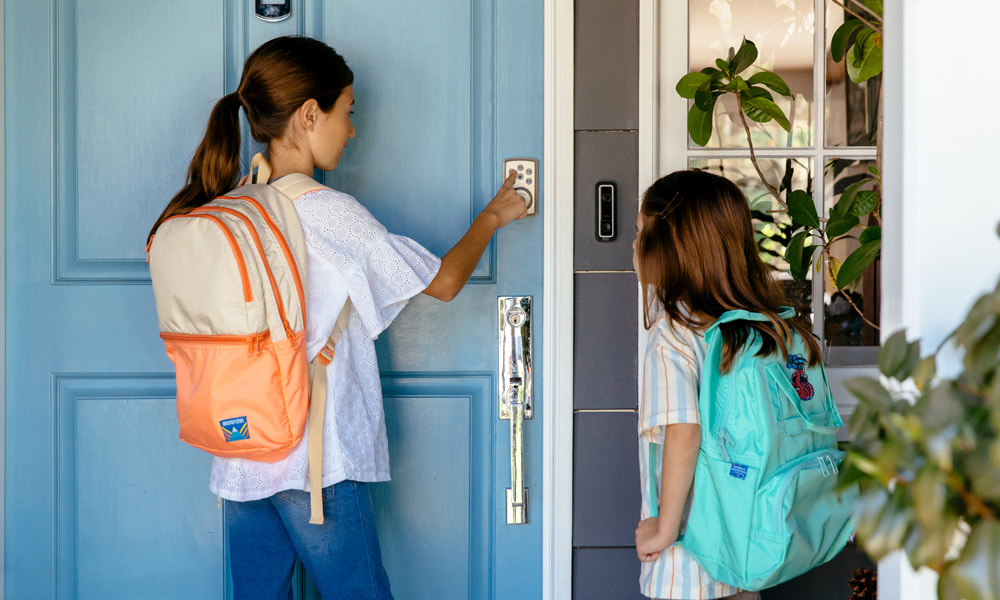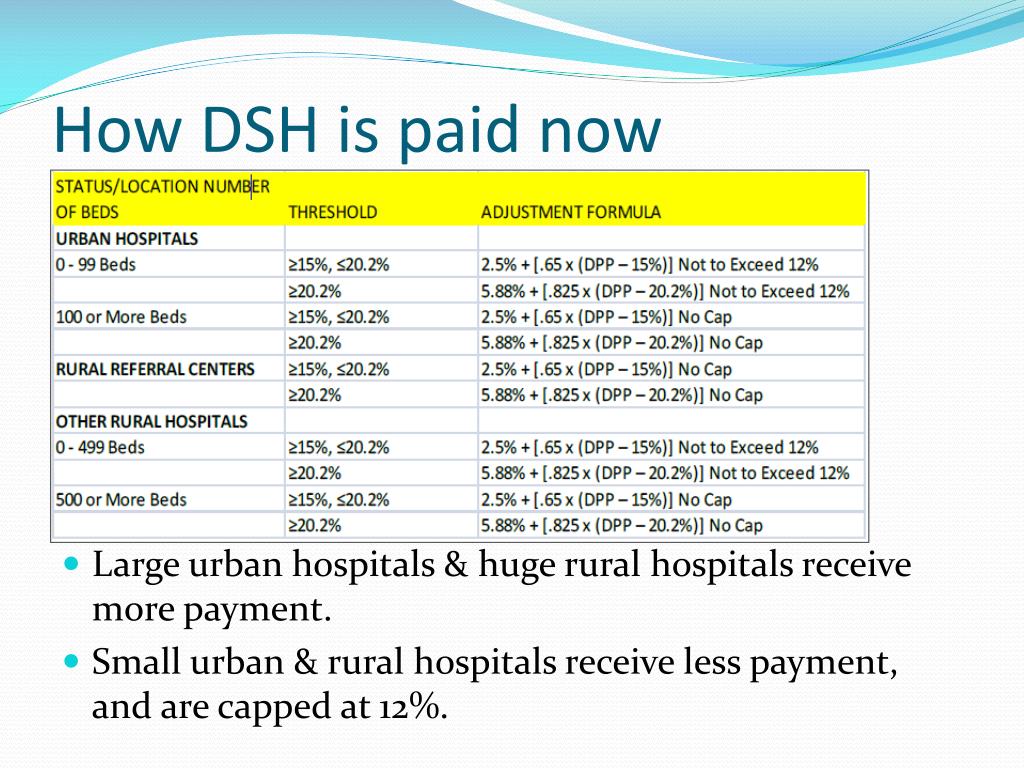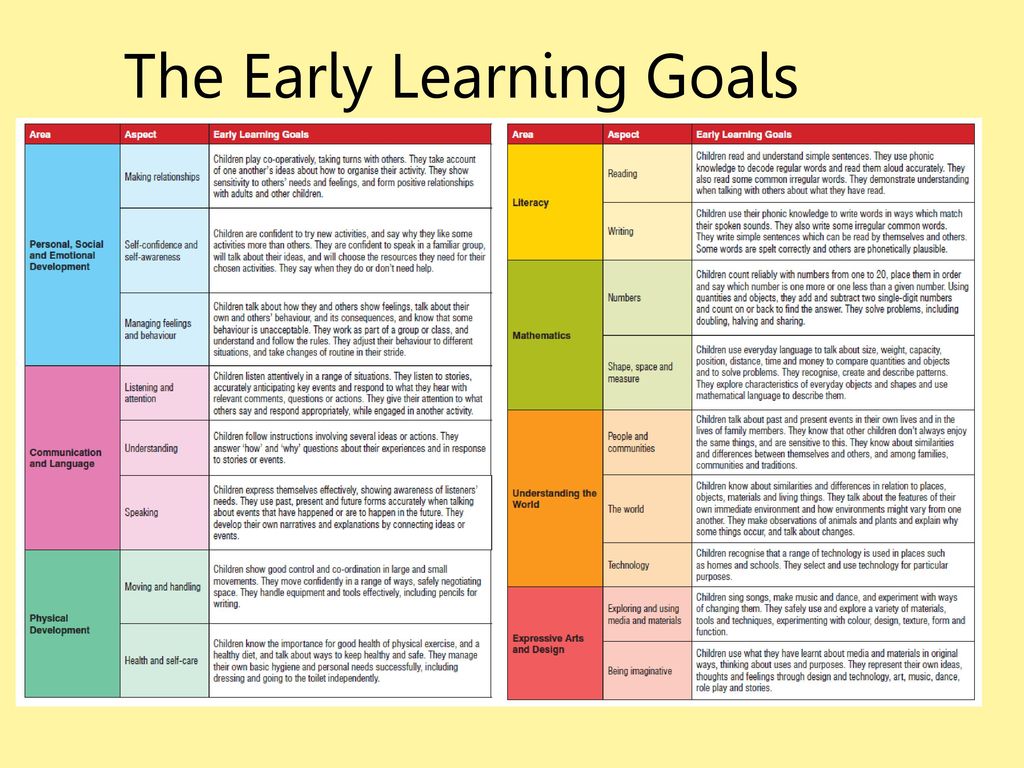How to get your child into the school you want
Four Steps to Selecting a School for Your Child
How do you pick the best school for your child? Whether you are choosing a public or private school or homeschooling, whether or not you are paying tuition, careful planning is a must. The following sections have questions for you to consider, with workspace for you to write down your thoughts, as you go through the process of choosing a school for your child. Remember, you are looking for a school that will make the educational experience for your child and you as rewarding as possible.
Write down five things that are most important to you
You may wish to write down five things that are most important to you as you consider the choice of a school. As you go through the selection process, you may want to add to and revise your list.
Here are four steps for selecting the school that is right for your child:
Step 1: Consider your child & your family
Start your search for the best school by thinking about what you want a school to do for your child. Perhaps your child has special language or education needs. Keep these in mind. After all, you know your son or daughter better than anyone else does.
Your child's needs
- Does your child need a more structured environment?
- Does your child need a less structured environment?
- Does your child need more challenging work?
- Does your child need more individual attention?
- Does your child generally need extra help or more time to complete an assignment?
- Does your child have any special learning needs?
- Does your child need an environment that fosters creativity?
- Does your child need an English language acquisition program?
Your child's learning style
- Does your child learn best by seeing how things work?
- Does your child learn best by reading about how something works?
- Does your child learn best by listening?
- Does your child like to participate in discussions?
- Does your child like to learn through physical activity?
- Is your child logical or mathematical?
- Is your child musical or artistic?
- Does your child like to learn in groups?
- Does your child like to work alone?
Location of school
- Do you want your child to go to a school within walking distance of your home?
- Can your child's talents be nurtured outside your neighborhood?
- How far are you willing to have your child bused?
- How far are you willing to drive your child to school?
- Does your child want to be in a school with his or her friends?
- Do you want your child to go to a school near your after-school care? Near where you work? Near a close relative?
- Does your child have any special transportation needs that must be considered in choosing a school?
Step 2: Gather information about schools
If you were looking to buy a car, vacuum cleaner, or refrigerator, you could talk to friends and family and find information on the Internet, in consumer magazines, or in other published resources. Similarly, when investigating schools, you may also have to make phone calls, collect written material from different schools and look for reports in your local paper to get the information you need. You can check public school report cards (see Parent Tip) and go to parent fairs and school open houses. You can find reliable school information online on sites such as www.greatschools.net and www.schoolresults.org as well as other sites listed in the Resources section of this booklet. The hard work will be worth your while if you find a school that brings out the best in your child.
Similarly, when investigating schools, you may also have to make phone calls, collect written material from different schools and look for reports in your local paper to get the information you need. You can check public school report cards (see Parent Tip) and go to parent fairs and school open houses. You can find reliable school information online on sites such as www.greatschools.net and www.schoolresults.org as well as other sites listed in the Resources section of this booklet. The hard work will be worth your while if you find a school that brings out the best in your child.
Along with the schools' curricula and philosophy, you will want to know about school policies and services. Parents may also wish to consider the after-school programs a school offers, for example, sports, clubs, tutoring, or academic enrichment. Some schools have after-school activities funded by the U.S. Department of Education's 21st Century Community Learning Centers program. These centers provide educational activities outside of the regular school hours'before and after school or during summer vacation' that complement what is taught in school. You may also want to ask if the school has supplemental educational services, including free tutoring, that are offered outside of the regular school hours under No Child Left Behind.
You may also want to ask if the school has supplemental educational services, including free tutoring, that are offered outside of the regular school hours under No Child Left Behind.
Curriculum
- Does the school have a strong program of core academic subjects such as English, history, mathematics, science, arts, and foreign languages?
- What courses does the school offer in addition to the core subjects?
- What evidence is there that the school is effectively teaching students to read?
- Does the school have a special focus or theme for the curriculum?
- Does the school offer challenging courses such as Advanced Placement, International Baccalaureate, and high school honors courses?
- Does the school provide enrichment opportunities for all students? For gifted students?
- Does the school have extracurricular activities that support what is taught?
- Is there an effective English language acquisition program for children who need it?
- If your child has special learning needs, does the school have a curriculum and the necessary supports to appropriately accommodate those needs?
Approach to learning
- Does the school have a particular approach to teaching and learning (e.
 g., group projects, individual performance, frequent testing)?
g., group projects, individual performance, frequent testing)? - If yes, do you think your child will enjoy and learn from this approach?
- Does the school do all it can to make sure each child learns? Does it provide opportunities for children to get extra help when they need it?
- Is the school staff able to communicate in the language that your child understands?
- Are children with limited English language skills, learning disabilities, or other special needs learning and performing well on tests?
- What is the homework policy? Does it match your expectations for how much homework your child should do?
- Do you want your child to go to a singlesex (all-boy or all-girl) school, or a coeducational school?
- How large are the classes?
Academic performance
- How do the school's test scores compare to those of other schools? (Check the school's report card if it is a public school or ask for information from the school if it is a private school.
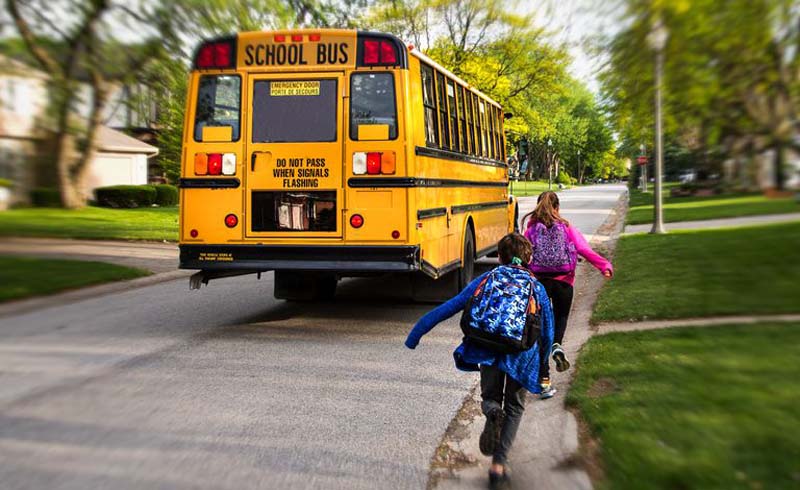 See 'Parent Tip' on school report cards.)
See 'Parent Tip' on school report cards.) - In the past few years, have test scores risen or declined?
- How does the school explain the rise or decline? How well have children similar to yours performed on these tests?
- How do students moving on to the next level of schooling perform in their new schools?
- How many students leave the school before completing the last grade?
- What special achievements or recognition has the school received?
Behavior policy
- What does the school do to help develop character and citizenship?
- What is the discipline policy? How does the school handle students who misbehave?
- Are teachers fair in their responses to students? Does the school have a program and supports to prevent and address behavior problems?
- Are students allowed to leave school by themselves?
- What measures has the school taken to ensure safety? What security measures are in place?
- What is the policy on school absences? How does the school encourage daily attendance?
- Do school personnel call parents when students are absent?
- Does the school have a drug and alcohol abuse prevention program?
- Does the school have a dress code?
- Do students wear uniforms?
Safety
- Is the school safe?
- How does the school prevent and handle problems with drugs, alcohol, and tobacco?
- How does the school prevent and handle violence, bullying, harassment, and other forms of abusive behavior?
- What measures does the school take to ensure safety? What security measures are in place?
- What is the school's relationship with the local police?
- Is there a police officer on duty during school hours and for extracurricular activities?
- What information is available on serious crime in the school?
- What information is available on students bringing weapons to school?
- Does the school have an emergency plan for local and national emergencies?
- What does the school do to ensure that parents and all school administrators know the emergency plan?
- Are there drills?
- How does the school notify parents about emergency closings? How does the school communicate with parents in other languages?
Special offerings
- What extracurricular activities does the school offer after school or on weekends?
- Do all students have the opportunity to participate in extracurricular activities?
- What interscholastic activities are available to students?
- What intramural activities are available to students?
- What activities receive the most attention and resources?
- Are there school and student publications?
- Does the school sponsor field trips?
- Are they available to all students?
- Are publications for parents available in other languages?
Facilities and services
- Is there a well-stocked library where students can check out books and do research? Are reading materials available in other languages?
- Is there interlibrary loan?
- Is time provided in the day for students to go to the library?
- Do students have access to computers and to the Internet in the classroom and library?
- Is use of the Internet monitored?
- Is there an auditorium or a large room for school assemblies?
- Is a school nurse on duty daily?
- Is there a cafeteria, and does the school offer a nutritionally well-balanced lunch program? Breakfast program?
- Is supervised before- and afterschool care offered?
- Are there tutoring programs?
- Are counseling services available to students?
- Is the school accessible to children with mobility limitations?
Admissions procedures for public schools of choice and private schools
- Is there an application process?
- What is the application deadline?
- Is anything else required in the application (test scores, interview, recommendations, application fees, etc.
 )?
)? - Are test scores required for admission?
- What are the ranges of scores for admitted students?
- Do admissions requirements include a portfolio, an audition or statement of interest?
- Are there any other admissions requirements?
- Are admissions requirements published in languages other than English?
Additional questions about private schools
- What is the tuition?
- Is there a payment plan?
- Is there a sliding scale for tuition, based on parish, church affiliation, or family income?
- What are the other fees and expenses (room and board, uniforms, books, transportation, lab and computer fees, activity fees)?
- What scholarships and loans are available?
- Are students or their parents required to be of a particular faith?
- Does the school have a policy on student participation in religious instruction and worship?
- Does the school close for religious and federal holidays?
- Does the school have the same schedule as the local public school?
Additional questions about home schools
- Have you identified curriculum materials for your child, and how much they will cost?
- Is there a suitable place for your child's study and instruction?
- Do you, your spouse, or another homeschooling parent have adequate free time to be available to your homeschooling child?
- Do other families in your area homeschool their children?
- Is there a support group of homeschoolers near you?
- If you are interested in some outside instructional support, have you checked your local library, parks department, scouting organizations, public and private schools, and similar resources?
- Have you searched the Web for resources on instruction, legal issues, support groups, and other matters?
- Have you identified other resources you will need?
- Have you checked state regulations? (They are usually available on the web or from your local public school or school district.
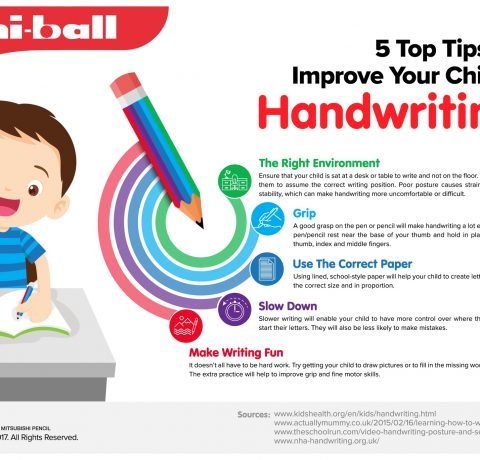 )
)
Step 3: Visit and observe schools
Contact the schools you are interested in and make an appointment for a visit. If possible, tour the schools during regular school hours and visit a few classes. Avoid visiting schools during the first or last week of a term in order to get a realistic sense of how the school operates.
A good way to have your questions answered is to schedule an appointment with the school principal. If possible, attend an open house, parent-teacher meeting, or other school function that would also provide valuable information about the attitudes of staff, students, and parents.
Listen closely to what teachers say about the school. The teachers will be the adults closest to your child, and you will want to know if they are well prepared, dedicated, and happy in their work.
Culture
- Is the school secretary helpful and friendly?
- Is the school orderly and neat?
- What do the bulletin boards look like?
- How is student work displayed?
- How does the school communicate with students and parents (weekly/monthly newsletter, e-mail, Web site)?
- Do the students appear to be courteous, happy, and disciplined?
- Is there a welcoming attitude toward all parents?
- How are the students with diverse learning needs (e.
 g., students with disabilities and students with limited English proficiency) treated?
g., students with disabilities and students with limited English proficiency) treated? - Do the teachers appear to be helpful and friendly?
Principal
- What is the principal's philosophy about education?
- What is the principal's attitude toward discipline?
- In what extracurricular activities is the principal most interested?
- What is the principal's reputation in the community?
- Is the principal usually at the school and available to talk to parents?
- Does the principal get to know the students?
- How often does the principal observe teachers?
- What does the school do to keep good teachers and improve teacher performance?
- How does the principal respond to parental concerns/complaints?
- What is the principal's attitude toward students with diverse learning needs (e.g., students with disabilities and students with limited English proficiency)?
- According to the principal, what are the school's strengths?
- According to the principal, what are the school's weaknesses?
- According to the principal, where can the school improve?
Teachers
- How do teachers grade student work?
- Do teachers have high expectations for all students to achieve to high academic standards?
- How do teachers inform students of their expectations?
- Do teachers share the course content and objectives with parents?
- When and how frequently are teachers available for parent conferences?
- Do teachers assign homework? Is it rigorous? Frequent? Sufficient?
- Are the teachers highly qualified to teach in their subject areas (do they know the subjects they are teaching)?
- Do teachers have the skills and knowledge to address students with special learning needs?
- Are specialized staffs available to address the special learning needs of a child (e.
 g., speech therapist, psychologist or aides)?
g., speech therapist, psychologist or aides)? - Do the teachers know the individual students in their classes?
- Are teachers willing to provide extra help to students?
- What is the school's policy regarding teacher response to parent inquiries?
- Do teachers have websites with class notes and other information for students and parents?
Students
- What is the attendance rate for students?
- What do students say about the principal?
- What do students say about the teachers?
- Do the students have school spirit?
- What do students say about homework?
- Do students participate in and enjoy field trips?
- Do students feel safe and secure at the school?
- What do student publications say?
- What else do students say about the school?
Parent and community involvement
- How does the school encourage parental involvement?
- What are the ways parents can get involved?
- Are parents encouraged to volunteer?
- Does the school have an active parent- teacher organization?
- Does the school hold meetings and events at times when parents can attend?
- How well attended are back-toschool nights by parents?
- Are families expected to be involved with homework?
- How frequently does the school communicate with parents?
- Are community leaders involved with the school?
- Does the school partner with local businesses and organizations?
- Are parents involved in the development of school policies?
Reputation
- How is the school regarded in the community?
- How is the school viewed by other parents?
- Is the school respected by other schools, particularly those that receive its students (when they move to the next level)?
- Has the school won any awards?
- Do people move to the community to go to the school?
- What do the graduates of the school say?
- Have graduates from the school made significant contributions to the community and their field of choice?
Step 4: Apply to the schools you choose
Once you select the school(s) that you think will be best for your child, you will go through a process of applying to a school (or schools) of your choice and enrolling your child. Consider applying to more than one school, in case your child is not admitted to their first choice.
Consider applying to more than one school, in case your child is not admitted to their first choice.
You will want to begin this process as early as possible in order to ensure you meet all the deadlines.
Admissions processes can vary. Your child may need to be tested or interviewed, and you may need to provide a school transcript, recommendations, or other information. It would be helpful to learn about admissions criteria for the schools. You will want to double check to be sure you have accurate information on when and how to apply.
Select one or more schools to apply to
- To which schools do you want to apply?
- What is the application deadline at each school?
Submit paperwork and applications before the deadlines
- Have you completely filled out the application for each school?
- Have you included all of the required additional information with the application (deposit, student transcript, test scores, letters of recommendation)?
- Have you submitted applications before the deadline set by each school?
Follow up
- Have you contacted each school to check on your child's application status?
- When will the schools notify you that your child has been admitted?
- When will you need to notify the school that your child plans to attend?
- When will you notify the schools that your child will not attend?
Congratulations
Congratulations on all the planning you have done to reach this point. Your child will benefit tremendously from your active concern and involvement with his or her education. By collecting information, talking to other parents, visiting schools, and exercising your right to choose, you can now take the lead in making sure your son or daughter gets the best possible education. However, this is only the beginning. By staying involved in your child's education, encouraging your child to work hard, and providing additional opportunities to learn at home and in the community, you can help your child go further still. Remember it is your right, as well as your responsibility, to seek the very best education for your son or daughter.
Your child will benefit tremendously from your active concern and involvement with his or her education. By collecting information, talking to other parents, visiting schools, and exercising your right to choose, you can now take the lead in making sure your son or daughter gets the best possible education. However, this is only the beginning. By staying involved in your child's education, encouraging your child to work hard, and providing additional opportunities to learn at home and in the community, you can help your child go further still. Remember it is your right, as well as your responsibility, to seek the very best education for your son or daughter.
Other websites that provide information related to school choice
Information for parents from the U.S. Department of Education (Click on the "Parents" box.)
Council of Chief State School Officers (links to state education agencies where you can learn about school performance and supplemental educational services providers)
GreatSchools.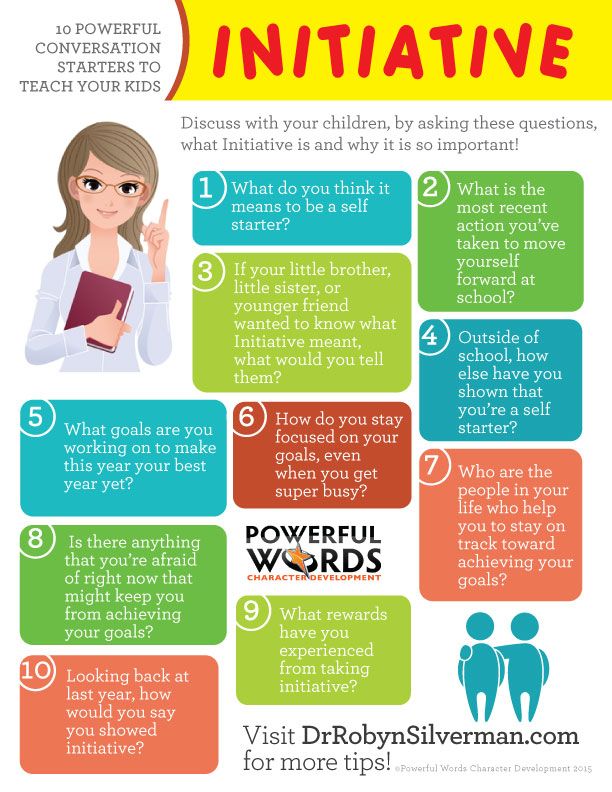 net (school profiles and comparative performance data)
net (school profiles and comparative performance data)
National Center for Education Statistics, U.S. Department of Education (search for public and private schools)
Office of Non-Public Education, U.S. Department of Education (links to nonpublic school organizations, private school locator, and other information about nonpublic education)
Parental Information and Resource Centers (directory of centers across the country)
SchoolMatters.org (comparative performance data)
U.S. Charter Schools (information about charter schools)
Websites for homeschoolers: The web has many resources, including instructional materials, assistance on legal issues, links to support groups, and others. Websites for homeschoolers are too numerous to list here, but a search on terms such as "homeschool" or "homeschooling" should lead you to those sites that best match your interests and needs.
Download booklet Choosing a School for Your Child >
Download booklet Choosing a School for Your Child?á (Spanish)>
Working the system to get the school of your choice
It used to be that when it was time to find a school for the kids, most Americans looked no further than the neighborhood school.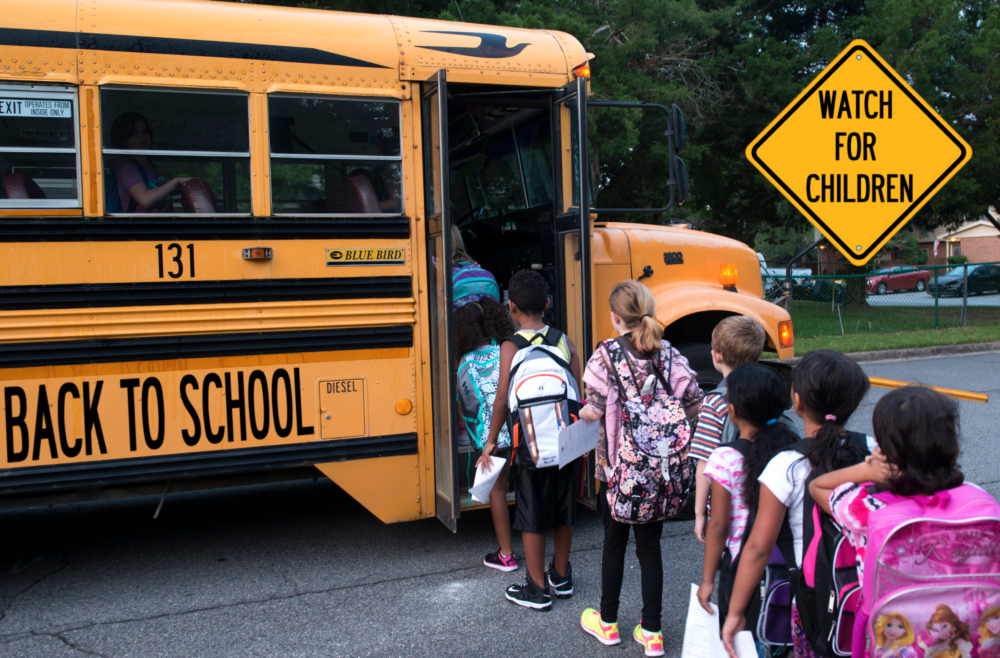
Now, however, with the expansion of open enrollment policies and the growth of the charter school movement, competition to get into public schools with good reputations has become more wide-spread. A competitive admissions process is not just a private school phenomenon anymore.
“About a quarter of kids go to a school other than the one they’re assigned to,” says Bryan Hassel, co-author, with Emily Ayscue Hassel, of The Picky Parent Guide: Choose Your Child’s School with Confidence. “Some fraction of the other three-quarters choose where they live because of a school, which is another way of exerting school choice. About 50 percent of families are exercising school choice.”
With the ever increasing assortment of options available to parents, it’s become important to not only research the schools themselves, but also the various rules, written and unwritten, of admission.
In many communities, the admissions process can be fairly complicated. In New York City, for example, parents greatly increase their chances of success by learning the system. “New York City has 32 districts, 10 regions and 1,400 schools,” says Pamela Wheaton, Deputy Director of InsideSchools.org, a website devoted to New York City public schools. “In some districts in the city you can apply to schools that aren’t in your neighborhood and ask for what is called a variance. There are some programs that are open city wide. High school is pretty open, but there are some schools in certain areas of the city where unless you live in the district you can’t apply. What counts for admission to many schools are the scores on the seventh grade test, but there are several systems. One is an Educational Option, which is a way of ensuring a mix of high-, middle- and low-achieving kids. So there’s a specific formula of how they accept kids. Fifty percent are selected by computer and 50 percent are selected by the schools.”
“New York City has 32 districts, 10 regions and 1,400 schools,” says Pamela Wheaton, Deputy Director of InsideSchools.org, a website devoted to New York City public schools. “In some districts in the city you can apply to schools that aren’t in your neighborhood and ask for what is called a variance. There are some programs that are open city wide. High school is pretty open, but there are some schools in certain areas of the city where unless you live in the district you can’t apply. What counts for admission to many schools are the scores on the seventh grade test, but there are several systems. One is an Educational Option, which is a way of ensuring a mix of high-, middle- and low-achieving kids. So there’s a specific formula of how they accept kids. Fifty percent are selected by computer and 50 percent are selected by the schools.”
Advertisement
Basic rules of the game
Regardless of how simple or complicated, competitive or not, your district’s system is, there are some basic strategies that can be applied to help your child get into a great school.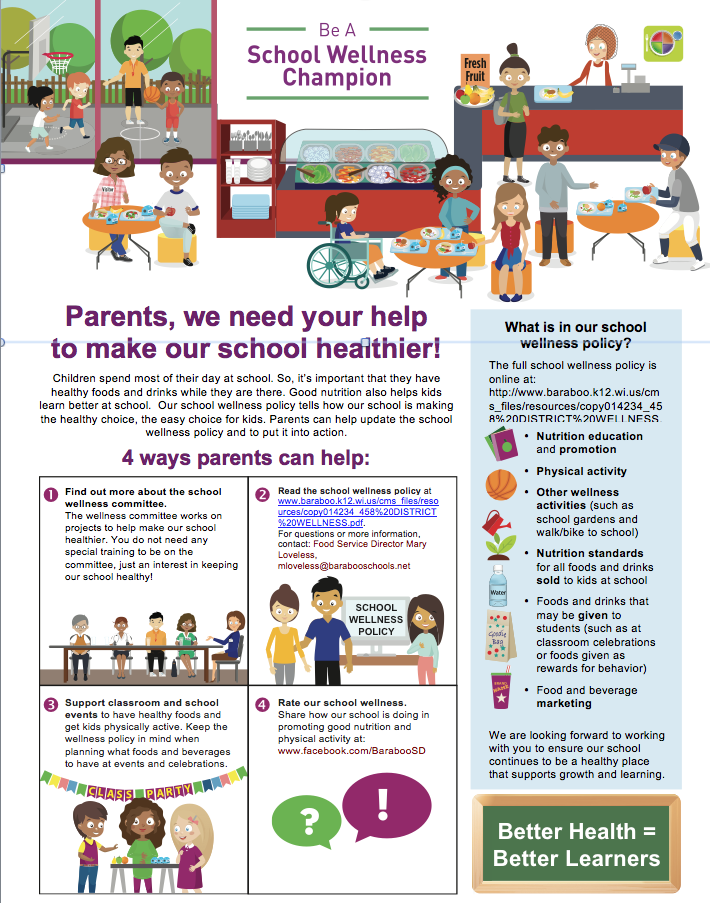
1. Look for those up-and-coming, hot new schools
“The first tip to figuring out strategies is to broaden your perspective on which schools you would want to apply for,” says Deena Zacharin, former director of the Office of Parent Relations for the San Francisco Unified School District. “The best way to do that is to go see the schools themselves. Schools often have reputations that are seven to 10 years old. It takes a long time for a reputation to turn around with a school. But when you go and see the school, you see all the wonderful things that might be happening there.”
2. Avoid the herd mentality
Parents should look at a school’s test scores as a measure of how well students achieve, but that is only part of the picture of a school. “You really have to talk to the principal and see what is going on in the classroom to determine if it’s a good fit for your family,” says Sandra Halladey, founder and former associate director of the San Francisco chapter of Parents for Public Schools. “Just because it’s a good fit for all your friends doesn’t mean it’s a good fit for your family. What your next-door neighbor or your best friend might think is a wonderful school and is a perfect fit might not be the same for you.”
“Just because it’s a good fit for all your friends doesn’t mean it’s a good fit for your family. What your next-door neighbor or your best friend might think is a wonderful school and is a perfect fit might not be the same for you.”
3. Don’t mess up
Don’t lose out because of missed deadlines or incomplete paper work. Hassel cautions: “If it truly is a purely mechanical system, such as a lottery, then the most important strategy is to make sure that you get things in on time. Don’t mess up. Don’t mess up is one of those basic technical requirements.”
Even after you’ve gotten your child into the school, complete all the steps. “Make sure that you read all the paper work that you get from the school district and that you respond in a timely manner to all the deadlines,” says Halladey. “If you’re offered a seat and if you don’t go within the required time frame and accept that seat, then you’ve lost it.”
4. Get your information from the right source
“Make sure you get information from the correct source, which is the district office,” warns Halladey. “Your school secretary or teacher might not have the latest information.”
“Your school secretary or teacher might not have the latest information.”
5. Investigate your district’s Gifted and Talented Education (GATE) admission rules
If you believe your child is a bright student, a GATE program might be an entree to a better educational opportunity. Find out if GATE programs in your district are only offered in certain schools. Some GATE programs ask for nursery school assessments, while others might not require anything until third or fourth grade, when a GATE test is administered.
6. Consider new schools
Often public schools create small academies within larger schools, or new public, charter or private schools are opened, after the regular enrollment process is over. These schools may have seats available for months before word of their existence spreads. Check with your district for more information about new public and charter schools. Choosing a school without an established reputation is a risk, but new schools can provide exciting opportunities to form communities and to create positive change.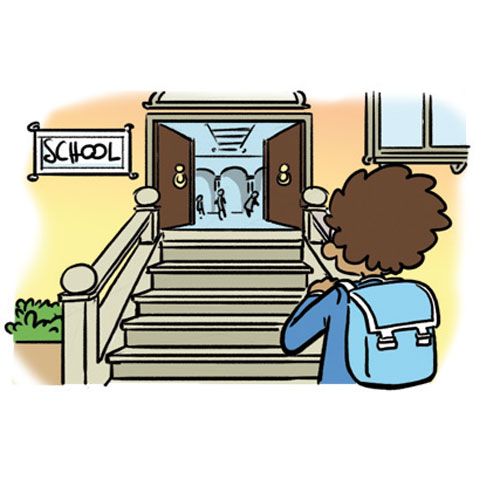
7. Find out if you can apply to more than one program at a school
“Some larger schools have several programs-such as one in art, or one in government,” says Wheaton of Insideschools.org. “So if that’s the school you want to go to, apply to all the programs, because once you get in you can transfer to the program you really want.”
8. Write directly to the school principal
“One tip, even for the public school system, is to write a cover letter to the school that really zeros in on what we call your ‘child’s fit’ with the school,” says Hassel. “It certainly can be provided, even for the more mechanical lottery type systems. It never hurts to try, right? Plus, it’s part of building your relationship with the school, if your child does ultimately go there. This letter should be brief and to the point.”
9. Apply to schools that require auditions or special admissions procedures, as well as to regular lottery schools
Some schools require auditions or portfolios of past work for admission. If you feel that your child has a special talent or a strong interest in a particular field, preparing for these schools will create more options for your child.
If you feel that your child has a special talent or a strong interest in a particular field, preparing for these schools will create more options for your child.
10. Use all preferences that apply to you
“Find out what kinds of preferences are built into the system,” says Hassel, “and make sure that you’re taking advantage of those that apply to you, such as sibling preferences and neighborhood preferences. Often public school lotteries have preferences for race, although race is supposed to be counting less, but with court decisions it’s possible that income counts. There are all kinds of preferences that are built into the system. There is nothing that you can do about those preferences, either you have them or you don’t, but make sure that you get any advantage that you can out of them.”
For example, there’s a twist on sibling preference that can sometimes be used. “It may be that getting your kindergartner into a school is easier than getting your second-grader in,” says Hassel. “If you get your kindergartner in, maybe your second-grader can go there the next year with the sibling preference. Understanding how that works can be really helpful.”
“If you get your kindergartner in, maybe your second-grader can go there the next year with the sibling preference. Understanding how that works can be really helpful.”
(Note: Sibling preference deadlines are often earlier than regular enrollment deadlines. Be sure to know the different enrollment deadlines.)
Finally, if it applies to your situation, find out what the inter- and intradistrict transfer rules are. Every state has rules that govern the use of interdistrict (between districts) and intradistrict (within a district) transfers. For example, in California, you can legally apply for a transfer to a district in which you work, regardless of whether you live in that district. The district must consider your request, although they do not have to admit you if there are no seats available. Knowing the rules of district transfers might allow you to place your child in a school in a better district, however it probably won’t help you land a spot in an oversubscribed school.
Always have a Plan B!
If your child doesn’t get into that must-have school on the first go round, here are a few Plan B tips.
Enrollment of a child in a school on a territorial basis
ONLY TODAY - Ask a lawyer for free!
- Ask a question via online chat
- Call the hotline: All RF - 8(800)302-58-65
We were denied enrollment of a child in the 1st grade of the school for which we are assigned territorially (lack of places). What chances do I have under the current legislation to require enrollment in our school?
Vladimir Ivanov
Consultations: 597
According to Part 3 of Art. 67 of the Federal Law of December 29, 2012 No. 273-FZ “On Education in the Russian Federation”, the rules for admission to state and municipal educational organizations for training in basic general education programs should also ensure the admission to an educational organization of citizens who have the right to receive general education of the appropriate level and residing in the territory for which the specified educational organization is assigned.
The procedure for admission of citizens to study in educational programs of primary general, basic general and secondary general education was approved by order of the Ministry of Education and Science of Russia dated January 22, 2014 No. 32 (hereinafter referred to as the Procedure).
According to paragraph 14 of the Procedure, the acceptance of applications for the first class of an organization that carries out educational activities (school) for citizens living in the assigned territory begins no later than February 1 and ends no later than June 30 of the current year.
Enrollment in an organization carrying out educational activities (school) is formalized by an administrative act of an organization carrying out educational activities (school) within seven working days after receiving the documents.
For children not residing in the assigned territory, the acceptance of applications for the first grade starts from July 1 of the current year until the vacancies are filled, but no later than September 5 of the current year.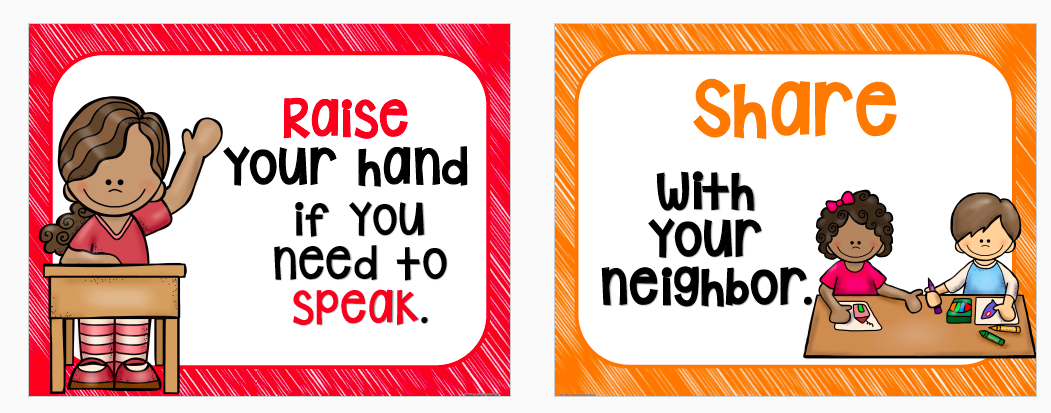
Organizations carrying out educational activities (schools) that have completed admission to the first grade of all children living in the assigned territory, accept children who do not live in the assigned territory before July 1.
In accordance with clause 16 of the Procedure for admission to vacant places of children who do not live in the assigned territory, children of citizens who have the right to priority provision of a place in an organization engaged in educational activities in accordance with the legislation of the Russian Federation and regulatory legal acts of the subjects RF.
Part 4 of Art. 67 of the Federal Law "On Education in the Russian Federation", admission to a state or municipal educational organization may be refused only due to the lack of vacant places in it, with the exception of cases. In the absence of places in a state or municipal educational organization, the parents (legal representatives) of the child, in order to resolve the issue of his placement in another general educational organization, apply directly to the executive authority of the constituent entity of the Russian Federation that exercises public administration in the field of education, or the local government that controls the field of education.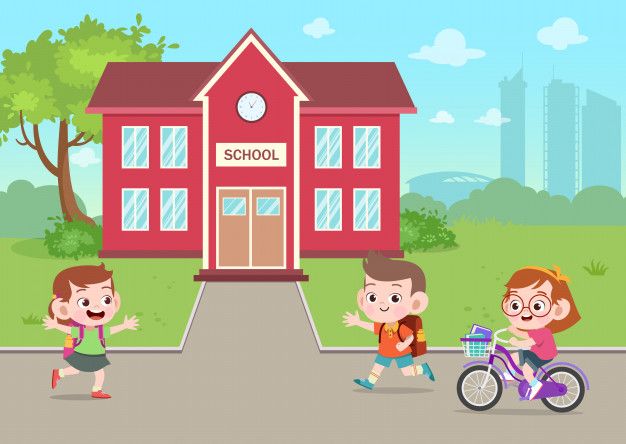
Thus, children who live in the assigned territory are initially admitted to school in the 1st grade, and they can be refused only if there are no free places in the school. In the absence of places, children are placed in the 1st grade of another school, not in the assigned territory, after the direct application of the parent (legal representative) of the child to the executive authority of the constituent entity of the Russian Federation, which carries out state administration in the field of education, or the local government, which manages in the field of education .
Therefore, if there are no free places in the selected school in the assigned area for the child to study in grade 1, then the request for admission to the selected school will be denied.
It will be possible to transfer to a school in the future, subject to availability. Order of the Ministry of Education and Science of Russia dated March 12, 2014 No. 177 approved the Procedure and conditions for the transfer of students from one organization carrying out educational activities in educational programs of primary general, basic general and secondary general education to other organizations carrying out educational activities in educational programs of the appropriate level and focus .
Based on par. 3 paragraph 5 of this Procedure, parents (legal representatives) can apply to the selected school with a request for availability, including using the Internet.
The Ministry of Education and Science of Ukraine initiates the enrollment of children in primary school on the principles of its territorial accessibility, according to the draft procedure for enrollment, expulsion and transfer of students to state and municipal educational institutions to receive a complete general secondary education.
"The draft document describes the mechanisms for enrolling children in primary (1-4 grade), basic (5-9 grade) and senior (10-11 grade) schools. In particular, the new procedure for enrolling in primary school is based on the principles of its territorial accessibility . That is, each school must accept a child who lives in the territory of its service, "the press service of the Ministry of Education said in a statement.
In particular, the document guarantees the primary right of a child from this territory to study at a state or communal school, but, if desired, parents can send their child to another school if there is a free place there.
Assignment of service areas to schools is the responsibility of local authorities.
"So, the concept of "competition in the first class", which for many years has been criticized by the parent community, is a thing of the past," the ministry emphasizes.
It is noted that school administrations and local authorities will be required to take comprehensive measures to enroll all children from the service area, namely: opening additional classes, including inclusive or special, or changing the organization of the educational process, including the introduction of shifts in learning.
At the same time, in case of a significant excess of the number of applications submitted over the possibility of opening, enrollment will occur according to the criteria described in the procedure.
"According to experts' forecasts, the number of such schools in Ukraine will not exceed 0.5%," the Ministry of Education is sure.
In addition, the proposed procedure describes the mechanisms for enrolling and transferring students to gymnasiums (grades 5-9) and lyceums (grades 10-11) and, in addition, the conditions and procedure for expelling students from secondary education institutions.
Every citizen living on the territory of the Russian Federation must have a registration. It can be permanent or temporary. Registration is issued not only for the adult population, but also for children.
Depending on the place of residence, there is a territorial fixing in a certain polyclinic, in a specific school or kindergarten, related to a specific address. For admission, you must present a certificate. We will tell you in detail about the features that you need to know for admission to the school.
Dear readers! Our articles talk about typical ways to resolve legal issues, but each case is unique.
Show content
Any citizen under Article 43 of the Constitution of the Russian Federation has the right to education. There are no official requirements that enrollment in an educational institution takes place only on a territorial basis. But there are certain recommendations of the Ministry of Education, on the basis of which it becomes clear whether the child will be taken to the desired institution.
Attention! According to Order No. 32 of 01/22/2014, clarifications were made that children have the right to receive educational services in those institutions that correspond to their place of residence. In this case, a refusal can be received only if there are no empty seats.
The requirement to register children in the first class on a territorial basis is explained by the fact that they should not spend much time on the road, as this increases all kinds of risks of unpleasant situations. Therefore, the school cares about the health and safety of its students.
In practice, at first, those children who belong to the educational institution at the place of residence are admitted. They have priority. Then, if there are remaining places, all other children are enrolled.
🔥 How to identify an educational institution by address?
Determining the school institution to which a particular house belongs can be done in several ways:
- The Internet is considered the most common way.
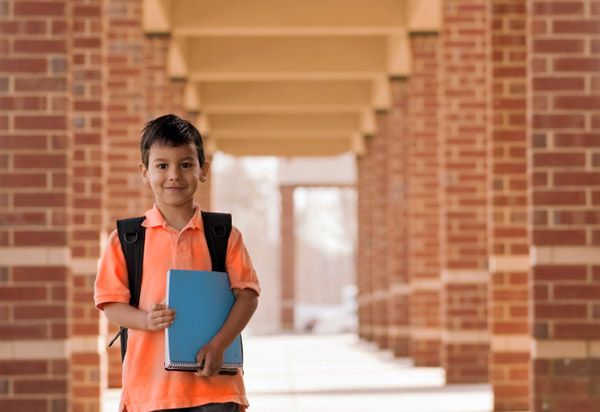 There are websites where you can find out which school the residence is attached to.
There are websites where you can find out which school the residence is attached to. - In the district education organization, you can clarify the information by phone call or personal visit.
- The educational institution itself has information about attached houses. Also, all schools have created websites where you can find information of interest.
Tip! Another way is to remember in which school building the voting takes place.
🔥 Can I donate at the place of residence?
When living in an apartment where one of the parents is registered, it is possible to place a child in the first grade, even if he is not registered there. When submitting an application, it is necessary to indicate that the child lives at the place of residence of this parent.
In order to place your child in a school of residence registration, should be the first to apply to the school of interest . Such applications begin to be accepted from April 1. Moreover, at first, a record is made of those children who belong to this school territorially.
Moreover, at first, a record is made of those children who belong to this school territorially.
Registration continues until June 30th. Starting from July 1, the number of vacant places is determined, which are filled by all other applicants. Here is a list with the order of submission of applications.
If it was one of the first registered, then there is a great chance to get into the right educational institution.
It is also possible to increase the probability of admission to the chosen school due to additional documents for the child. It can be a collected portfolio: earned certificates and awards. Other things being equal, a student with developed abilities will be given preference and will go to the chosen school.
Since 2012, it is possible to enroll in the first class on the website of the State Service. Within 5 days after receiving a response on successful registration, you must personally submit documents for a future first-grader to the selected institution.
When applying, please state the reason for choosing this school. This may be a close distance to the place of residence, the presence of older children studying in the same school. Another reason may be the mention that one of the parents himself studied in it.
🔥 How to arrange temporary registration?
When enrolling in first grade, many parents try to get a temporary residence permit for their child. This provides almost 100% access to study at a prestigious school.
Temporary registration can be done at the MFC or the Department of the Federal Migration Service.
The most acceptable way is to temporarily register with relatives who live near the chosen school. If there are none, then you need to find housing located in the houses closest to the educational institution, and an owner who agrees to issue a temporary registration (read about whether it is possible to register a child without the consent of the owner).
It is worth considering that if the child does not have a passport yet, then one of the parents must be registered . If the father or mother is already registered in the apartment, then it is not necessary to take the permission of the owner in order to register the child.
If the father or mother is already registered in the apartment, then it is not necessary to take the permission of the owner in order to register the child.
Help! For registration, a birth certificate with a note of Russian citizenship, an application, a parent's passport, a notarized consent of the owner of the apartment and all living with him are required.
- Download the application form for temporary registration at the place of residence
- Download a sample application for temporary registration at the place of residence
🔥 How to do it without registration?
When moving to another city or region, a situation may arise when registration has not yet been issued, and the academic year is in full swing. If 90 days have not passed since the last deregistration of a minor child, then the school administration must accept such a child for training in accordance with his age and class.
But within the allotted time (90 days) parents must at least register temporarily , otherwise penalties will follow. Read more about the penalties for not registering your child on time.
Read more about the penalties for not registering your child on time.
According to the legislation of our country, there is no strict binding of school attendance in accordance with the place of registration. But according to the existing recommendations of the Ministry of Education, children who belong to it on a territorial basis have a priority right to admission to an educational institution.
Interested in all the details of the registration of minor children? Then read our articles about:
- a minor child must be registered;
- what documents are needed to register children under 18;
- how to register a newborn; and what documents are required; And how long does the procedure take.
Therefore, in order to get into the chosen institution, it is required either to submit an application in the forefront, which will be approved subject to availability, or to issue a temporary residence permit in the house closest to the prestigious school.
If you find an error, please select a text fragment and press Ctrl+Enter.
When it comes time to enroll a child in the 1st grade, there are often difficulties associated with admission to an educational institution if it is not located at the place of registration of the family.
What if, for example, parents decide to enroll their child in a specialized school or a prestigious lyceum? What should foreigners do? Will a child be taken to school without a residence permit?
Let's look further into these issues.
🔥 The right to education and registration
Let's start with the fact that every child has the right to education, wherever he lives . But it is the parents who should make sure that the child must have a residence permit, at least a temporary one. Lack of registration is a violation of the migration regime.
If a child lives without registration for more than a week, then the parents are breaking the law and may be held administratively liable.
So, when moving to another city, parents should first of all take care of registering their child.
The administration of the educational institution requires documents confirming the registration of the child at the place of stay or residence. Temporary registration is not a reason for refusing to enroll a child in school.
🔻 Legislative framework
The Constitution of the Russian Federation (Article 43) and the Law on Education of the Russian Federation (Article 5 of Law No. 3266-1 of 1992) clearly define the rights of all children to free education .
There is also a prohibition against refusing to enroll a child on the basis of race or place of origin or residence.
In the process of realizing the child's right to education, parents often face a serious obstacle to enrolling a child in a school without a residence permit. The administration of educational institutions, guided by the provisions of Federal Law No. 310, adopted in 2011, is obliged to provide places for education to children living in an attached area of the city on a priority basis.
310, adopted in 2011, is obliged to provide places for education to children living in an attached area of the city on a priority basis.
In 2012, new rules were put in place to allow educators to apply the territorial principle when enrolling children in school.
According to paragraph 4 of Art. 67 of the Law on Education, first-graders at the place of registration are first enrolled in an educational institution, and children registered in other districts are accepted at the second stage, subject to availability.
Thus, if parents intend to enroll a first-grader in a school without a residence permit, then enrollment will occur on a residual basis. Children without registration in the area where the school is located are accepted in the second place.
🔻 Will they take my husband to school with registration?
Circumstances may develop in such a way that the child's parents are registered at different addresses . If it is necessary to arrange a child in a school at the address of the spouse, then the solution may be to obtain a permanent or temporary residence permit at the place of registration of the father.
However, it is better to do this before submitting documents to an educational institution. In this case, the child will be placed on the list of "first priority" with priority for enrollment.
The priority of registration is valid only when enrolling first-graders. In the upper grades, the formation of student ratings based on their success is allowed. The higher the rating, the greater the chance of admission to the school.
🔻 How to get a non-resident to school?
Moving to another locality, parents may face the problem of enrolling their child in school, especially if there are not enough places in the educational institution. Is it possible to enroll a child in a school without a residence permit in another city?
You can, but again, registration is required. In connection with the operation of priority norms for children living in a microdistrict allocated for a particular institution, it is almost impossible to enroll a child in school without registration.
Registration for 6 months will help solve the issue. Usually, parents from other cities are required to register, and one of the adults will have to register with the child. Although in some cases (upon the child reaches the age of 14), the law allows temporary registration of a teenager separately from his parents.
It is worth noting that the school administration may be wary of the temporary registration of a child. The time limit indicates that there is a possibility of an early departure and a change of school. As a result, your child may not be admitted to school.
This refusal is not the norm, and parents need to deal with this by contacting the Department of Education in the locality.
The administration of an educational institution has the right to refuse to accept a child only if there are no free places in the school. The territorial sign here fades into the background.
🔥 How to get a child to school without a residence permit in 2022?
If the issue of enrolling in a school is already ripe, do not delay the solution of the problem with registration.
In Russian schools, applications for first grade are usually accepted in 2 stages . From about February 1 to June 30, children from the microdistrict to which this educational institution is attached are enrolled in school (it does not matter whether the child has a temporary or permanent residence permit).
Information about which school the MKD belongs to can be found on the Federal or Regional portals of Russian education.
From July 1 to September 5, schools, as a rule, accept applications from residents of other microdistricts of the city, as well as from non-residents . During this period, parents can also enroll their children in specialized institutions or in schools that are considered status and prestigious.
The Russian Department of Education warns that not everyone will be able to get into the desired school without registration. Children from other microdistricts will be accepted only to the places that remained free after the enrollment of children from the attached territory.

That is why educators recommend that parents in any case submit their child's documents to a school located near their home, in case their child is not enrolled in the desired educational institution without registration.
It is also worth noting that specialized schools and gymnasiums consider each candidate not only by the presence of registration, but also by the level of inclinations and talents of the child necessary for his further development in this educational institution, subject to availability.
🔻 List of required documents
The main list of documents for school enrollment includes:
🔻 How to document the child's residence?
In order for a child to be enrolled in a school, it is necessary to document their residence in the microdistrict related to school . To do this, you must contact the Managing Organization serving the house, or the passport office and, based on the permanent / temporary registration of the child, obtain the appropriate certificate.
If you are renting an apartment, make sure that the tenancy agreement drawn up with the landlady mentions your schoolchild. This document will also serve as evidence.
🔻 School Admission Form
The school application is filled in the standard form . As a rule, it is written by the parent by hand in the name of the director of the educational institution, dated and signed. The text of the application expresses a request for enrollment of the child in this school.
If the student is transferred from another educational institution, the reason for the transfer is indicated.
🔻 How to enroll a refugee child?
The problem of refugees from Ukraine and other CIS countries is still relevant in Russia . According to the Law of the Russian Federation, citizens who have officially received refugee status have the right, on an equal basis with Russian schoolchildren, to get a job in general educational institutions, whether the school administration agrees with this fact or not.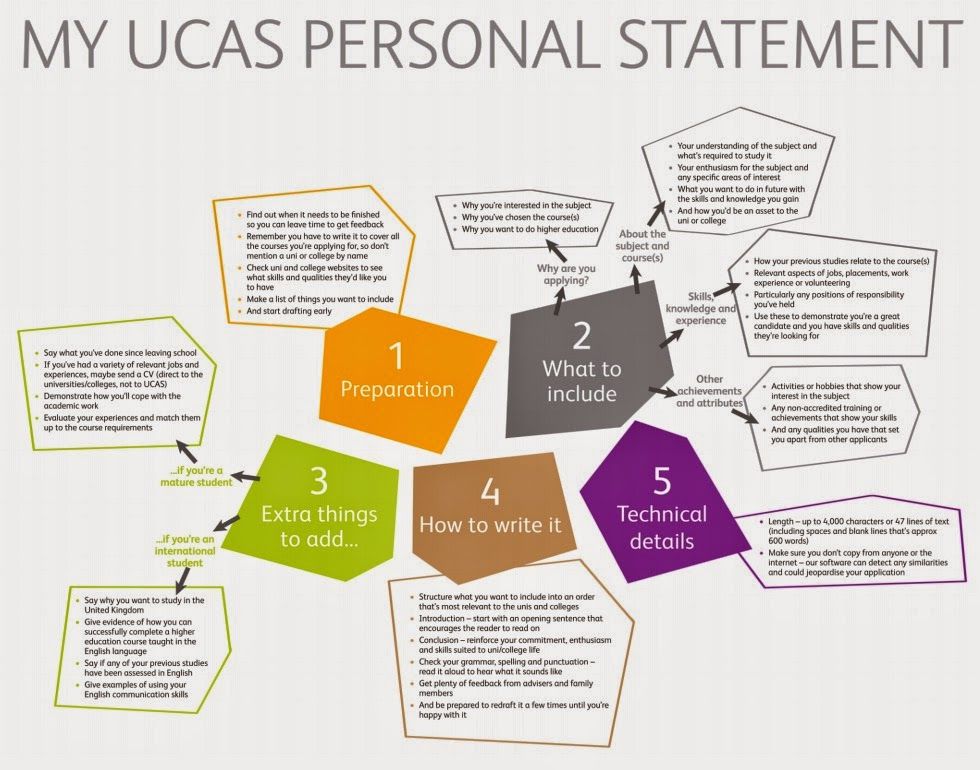
If there are any problems with this, then parents should file a complaint with the district / city administration or the RONO; They will definitely help you enroll your child.
🔻 Transfer to another school
Even if you moved and transfer your child in the middle of the year, you will not be denied admission if you have previously applied for a permanent or temporary residence permit.
In this case, the child is simply required to be accepted on the basis of documented residence near the educational institution, even if the classes are fully staffed.
But what if there is no registration? Then the school will be accepted only if there are free places.
How can I transfer my child to another school that is not registered? If there are no places, then you can simply be refused. In this case, the way out will be the temporary registration of the child at the location of the school.
🔻 Can I apply to several schools at once?
You cannot apply to several schools at the same time if you wish. The State Services website simply does not provide such an opportunity.
The State Services website simply does not provide such an opportunity.
If you apply to the director, it may be accepted, but you should know that all applications are registered in the database. If 2 applications are found, the second one will be canceled.
It is possible to submit a second application to another school in August, when the children on the main lists are already enrolled in the 1st grade. If there are empty places, they can accept a child registered in another district.
And there is another solution - to apply at the same time to a regular school and to a specialized school . For example, music schools at the Conservatory or choreographic schools are not directly subordinate to the Ministry of Education. They have their own database of applicants, so no one will know that you are also in line for a comprehensive school.
🔥 What to do if they don't take you to a school outside of registration?
First you need to understand the reason for the failure.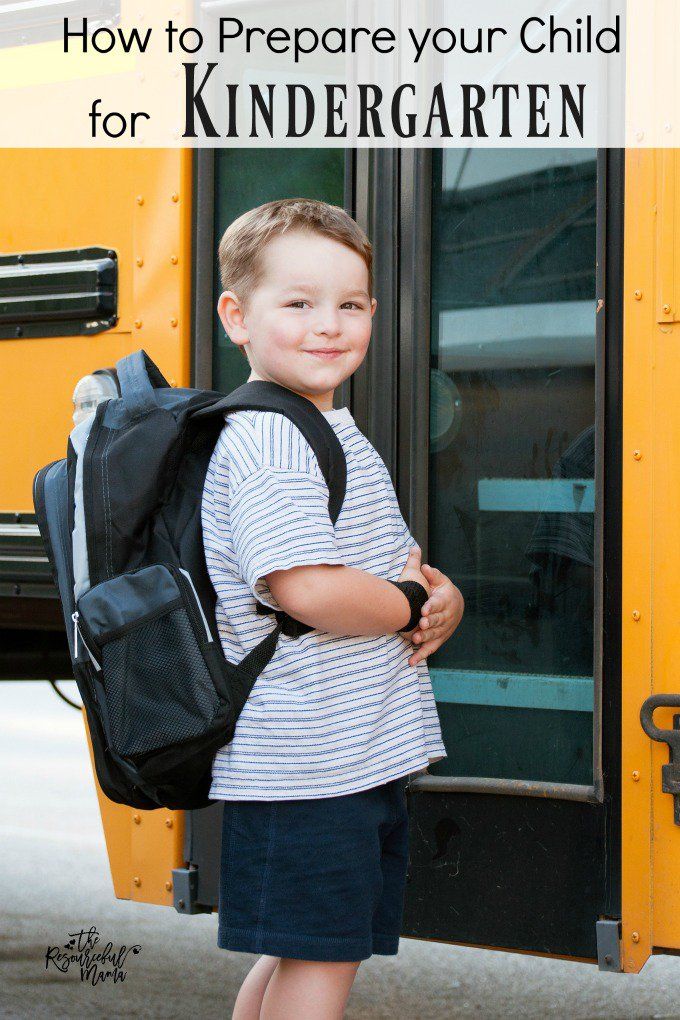 Perhaps it's not even the lack of registration.
Perhaps it's not even the lack of registration.
For example, if on September 1 the child is less than 6 years and 6 months old, then the administration has every right to refuse because the child is not ready for school . They may also not accept if the documents were submitted late and the school simply did not have more free places.
Applications from parents living in other microdistricts are accepted at the second stage, and if there are no more places left, then a refusal will follow. Then you have to give the baby to the school where there are places.
If you suspect that your child was not enrolled in school illegally, for example, due to lack of registration (although there are places) or poor test results, then ask for an official refusal document with an outgoing number. With this refusal, go to the RONO, where such problems are perfectly solved.
Sometimes the school authorities do not accept a child in the 1st grade because “he cannot read” . It is not right. Not a single law contains a list of skills that a candidate for first graders must possess.
It is not right. Not a single law contains a list of skills that a candidate for first graders must possess.
Parents do not develop their children for school because it is necessary to enroll in 1st grade. It's just the demands of the time.
Now children at the age of 7 have more skills and knowledge than children of past generations: they actively use computers and design robots already in kindergarten. Most children learn to read and write before they go to school. Therefore, it is so important that the child, having come to school, gets into a comfortable environment.
It will be difficult for a toddler who does not know how to read to get used to children who already read.
Of course, the child must be prepared for school . The future first grader must understand that he will soon have a new role - a student, and the school is an interesting stage with many discoveries and this should not be afraid.
At the end of the article, we note once again that registration is an important factor that gives a 100% guarantee that the child will be accepted exactly to the school where you want to enroll him. It is worth taking care of this in advance.
It is worth taking care of this in advance.
Sooner or later, every parent comes to the realization that his child has grown up and that the moment of choosing the first educational institution in his life is about to come.
The family begins to frantically search for an answer to the question: “Which school do we belong to by registration?”. It is extremely important to start preparing for this issue in advance. As a rule, the process of placing a child in school begins long before September 1.
🔥 How to find out which school a child is attached to
According to the Federal Law of December 29, 2012 No. 273-F3 “On Education in the Russian Federation”, residential facilities are really tied to educational institutions.
This was done to achieve the following goals:
- provision of educational services to the maximum number of students living in close proximity to schools;
- the ability to evenly place all the students of the city in schools, avoiding shortages or high congestion of institutions;
- creation of acceptable conditions for the implementation of the educational process for both students and employees.
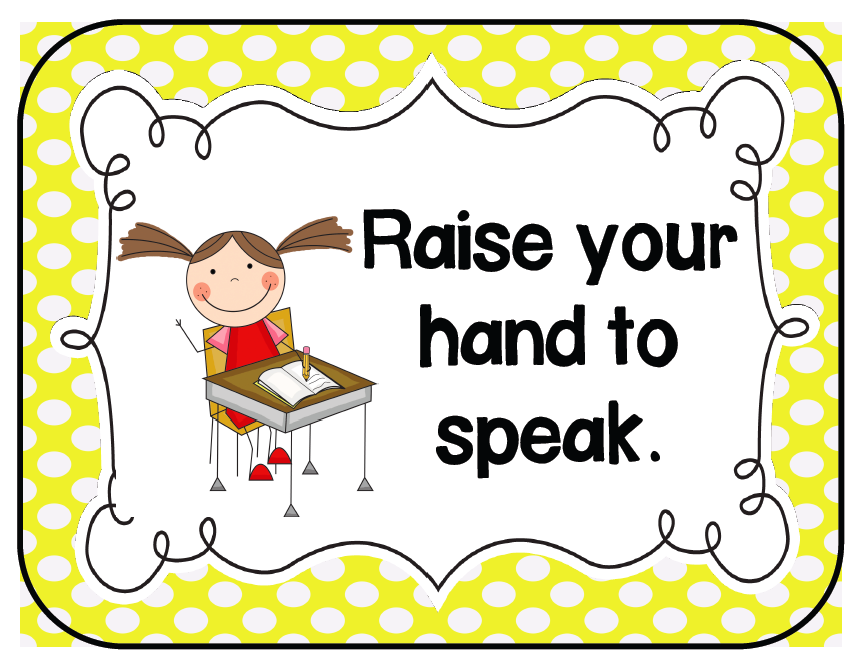
Help. The territorial feature is an important point, since it is directly related to attendance, and, accordingly, to the quality of children's education.
Parents have the right to request the necessary information about the educational institution of secondary general education. Modern realities are such that information about the future place of study, to which the child is territorially assigned, is as accessible as possible for every citizen of the Russian Federation.
You have the right to find out which school the address belongs to, using the following methods:
- Explore the Internet resource about education (websites of the school and the department of education, portal of public services).
- Visit the authorized state body (department of education of the city, district).
- Come to school in person.
Using one or several methods at once will give you a detailed answer to your question.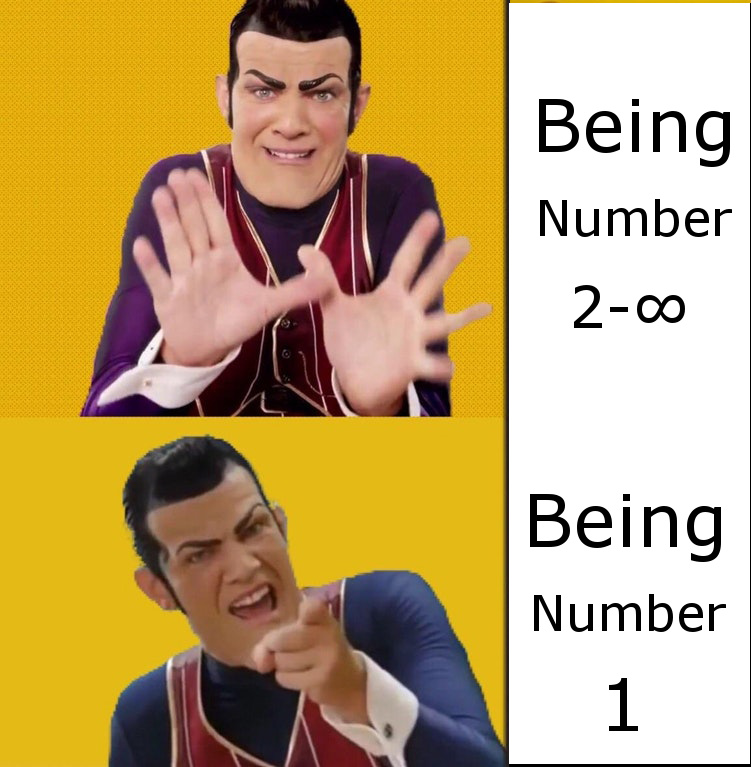 In addition, such methods allow the parent to verify the accuracy of the information received, their correctness and legality.
In addition, such methods allow the parent to verify the accuracy of the information received, their correctness and legality.
The problem of how to recognize a school by registration has become relevant due to an artificially created competition: in some educational institutions, a shortage is recorded, while in others, more reputable, the number of applications exceeds the number of places. Therefore, now the question of how to find out which school the address of the house belongs to is easily solved: the relevant information has become assigned to institutions.
🔥 Placement in school by temporary registration
A child can get a place in an educational institution with a temporary residence permit. He is in the status of a resident in a fixed area, which means he has the right to apply for a place in the school. In some regions, children are enrolled in the following order:
- With a permanent residence permit.

- Temporary registration.
- Not related to the assigned territory.
Linking the school to a specific area of the city is determined by the administrative act of local authorities. According to the order of the Ministry of Education and Science of the Russian Federation of January 22, 2014 No. 32 “On approval of the procedure for admitting citizens to study in educational programs of primary general, basic general and secondary general education”, parents have the right to request the necessary information about the educational institution of secondary general education.
Information on the territorial division is prepared and published on the Internet sites in accordance with the total number of children who have reached school age (6.5-8 years).
In some regions, in order to provide documents , it is possible to register on the state Internet resource. Parents or guardians fill in information about the place of registration and data on the birth certificate of the future first grader.
🔥 Denial of enrollment
Article 43 of the Constitution of the Russian Federation states that every citizen has the right to receive education .
However, for parents there is a list of required documents that must be submitted to the school. It is possible that even with a complete package of papers, parents will be refused admission of their child to an educational institution.
If the school in question is no longer available, check with the education department in your area for next steps.
Attention! Parents or guardians have the right to demand proof of lack of space. This is especially true for those who received a refusal to accept a child in a general educational institution by registration.
In any case, general education institutions will be near you, in which classes are not yet filled to the end. This also applies to situations where parents, for some reason, did not think in time about enrolling their child in school.
Most common reasons for rejection:
- age mismatch;
- non-compliance with the deadlines for submission of documents;
- exceeding the limit of places with the right of priority admission;
- health problems.
Help. If the level of preparation of a potential first-grader is high enough, then a child under the age of 6.5 years can be enrolled in the school. As a rule, such issues are discussed with the leadership of the educational institution on an individual basis.
🔥 Priority for enrollment
In accordance with the federal law on education , parents themselves have the right to choose organizations that carry out educational activities in educational programs of primary general, basic general and secondary general education (OOOD).
Order of the Ministry of Education and Science of the Russian Federation No. 32 establishes that when applying to a school, a child must be taken in order of priority by registration.
32 establishes that when applying to a school, a child must be taken in order of priority by registration.
First of all, children assigned to the territory of school at the place of residence are admitted to places. Then the remaining places are filled, regardless of registration.
🔻 After preparatory courses
If you have expressed a desire to send your child to a school not registered , then you should look in advance for options for institutions with preparatory courses. Which school the child will go to by registration and whether he will go according to it depends to a greater extent on you.
It is possible that the choice will fall on educational institutions that seek to fill vacant places with talented children from among those who have completed courses for future students. If the number of applicants for admission is higher than the number of vacancies, without passing the courses, the probability of not enrolling in the chosen school is greater.
Help. Different schools in the regions practice specific admission methods with their own nuances. It will often be best for legal guardians of children to contact the parents of the previously enrolled in the chosen school to clarify all the details.
🔻 By kinship
Sometimes parents think that if their eldest child studies or graduated from a specific educational institution, then the younger one will easily be taken to study at the same school.
Attention! Federal legislation does not establish the priority of accepting a child to a school based on kinship.
However, regions have the right to introduce their own preferences . School institutions may prefer applicants whose siblings are among students, unless prohibited by local law.
🔻 Benefits for admission to school
In each subject of the country, benefits are established for the admission of first-graders to educational institutions. Their list should be specified in the relevant department of education.
Their list should be specified in the relevant department of education.
Beneficial categories as a general rule include children whose legal representatives are:
- military personnel;
- judges; 90,006 prosecutors; 90,006 police officers;
- injured or killed in the line of military duty; 90,006 injured, injured or killed in the line of duty.
In general, such children, regardless of the place of permanent registration, are enrolled in the selected school. Some regions of the country also assign children to beneficiaries:
- with a single mother;
- under guardianship;
- orphans;
- from large or low-income families.
Attention! Children with disabilities are admitted to educational programs in an adapted general education system with the consent of their legal representatives and based on the recommendations of the psychological medical and pedagogical commission.

🔥 Applying to two schools at the same time
The answer to the question of how to determine which school a house belongs to does not always bring the expected results for parents. For various reasons the family may decide to study at another school, not according to registration .
Applications are accepted at the place of residence from the end of January to June 30, . Representatives of children of privileged categories carry out this procedure from December to January. Since July 1, understaffed classes have been filled.
In this regard, parents have the right to submit a package of documents to two schools at once , if before June 30 they take the application to the school at the place of residence, and from July 1 they apply to another educational institution that is of interest to them. This is necessary in order to maintain the right to priority admission and increase the chances of admission.
When the child is enrolled in the vacant place , you withdraw the application "by registration" and take the documents to the desired educational institution.
Submission of documents to the second school is carried out from the end of January to June 30, as in the case of admission to the place of residence on a general basis.
It is better to specify the terms of the admission procedure in advance at the school you are interested in , as they may differ in different institutions. Late submission of the application and documents is fraught with the fact that the child will be enrolled only if there are free places. The right of priority enrollment at the place of residence or the presence of a preferential category in this case is lost.
🔻 Application for admission to school
Application for admission to school can be submitted in the following ways:
- Through the MFC.

- In a general education organization.
- Through the public services portal.
Absolutely every educational institution must maintain its own Internet resource . A prerequisite is the availability of general information about the institution. Other characteristics and nuances of activities are disclosed at the discretion of the school itself.
OOOD accepts documents in electronic form using open access information and telecommunication networks.
Attention! The timing of the e-application will not affect the first grade admission decision.
In the application, parents indicate the following information:
- Full name of the future student;
- birth certificate data;
- full name of the legal representatives of the child;
- actual address of residence of the child and his representatives;
- contact information.

A sample of the application form can be found in OOOD at the information stand or on the official website of the institution.
🔥 Conclusion
So, admission to the first grade is a responsible matter, so it is important to familiarize yourself with all the details and the procedure for accepting a child to school in a timely manner.
If a first-grader, due to certain reasons, is forced to get to the place of study on his own, for safety and convenience reasons, choose a school closer to home. In addition, it is in the nearest institutions that the child has the right of priority admission. Lists of schools by registration are published in accordance with the administrative act on assigning educational organizations to specific territories of the municipal district.
You can easily find such an order on the school website.
Information sources
http://pravo.rg.ru/rubrics/question/1634/
http://interfax. com.ua/news/general/489834.html
com.ua/news/general/489834.html
http://urexpert.online /nedvizhimost/kvartira/propiska/detej-po-mestu-zhitelstvu/schkola.html
http://expert-home.net/kak-popast-v-shkolu-ne-po-propiske/
http:// 101jurist.com/semejnyj-kodeks/zapis-rebenka-v-shkolu.html
how to pick up documents, adaptation and difficulties
In the fall of 2019, we decided that we wanted to move to another area. By that time, my son had moved to the 4th grade, and it was necessary to understand what to do with the school.
Elena Evstratova
transferred the child to another school
Author profile
I asked my friends and found out that it is not easy to transfer a child to a good school. In St. Petersburg, children are admitted to the first grade by registration, but you can get into other classes only on empty seats. Strong schools may have their own admission criteria.
As a result, we successfully transferred our son and have no regrets. Although we were afraid that the child would have a hard time adapting to the new school. I will tell you how everything happens in the process of transferring from one school to another and what are the nuances.
Although we were afraid that the child would have a hard time adapting to the new school. I will tell you how everything happens in the process of transferring from one school to another and what are the nuances.
How the process works
I will write how everything happens, using the example of St. Petersburg. In other regions, things may be a little different.
The first grade in St. Petersburg is enrolled in three waves:
- Those who have a preferential right go to the first, for example, beneficiaries or brothers and sisters of those who are already in school.
- Secondly, those who are "assigned" to the school, that is, they live in the house attached to it.
- In the third group - those who live in another place, but want to get into the school for vacant places.
Memo from the Education Committee of St. Petersburg on admission to the 1st grade
Accommodation is determined by the registration of the child, permanent or temporary.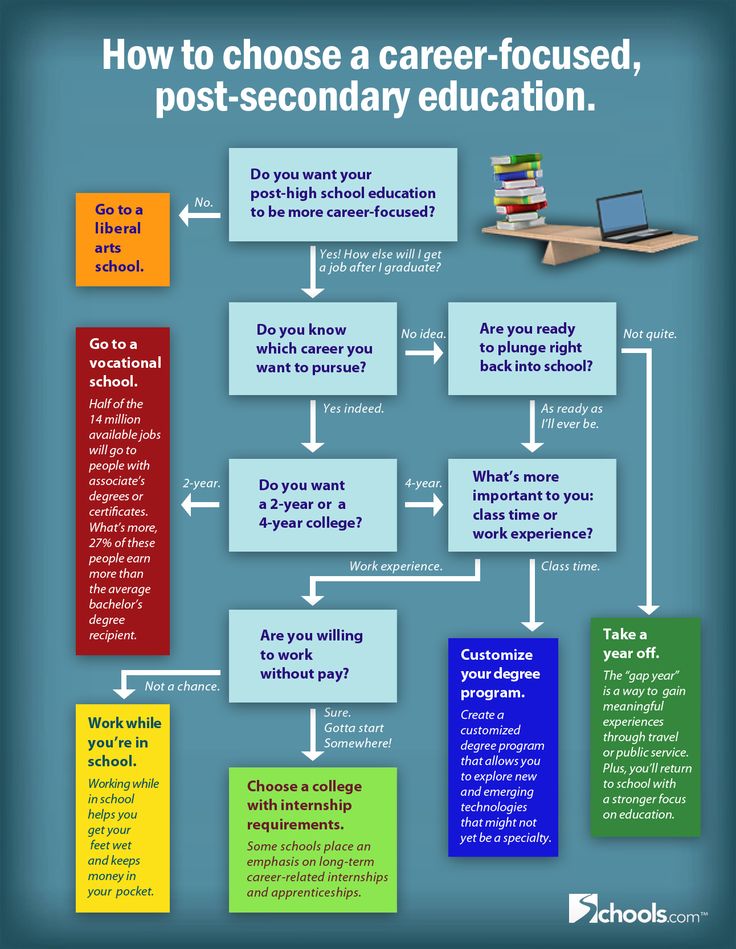 Our son entered the first grade by registration, and we submitted the documents to the second wave as "assigned". We had an ordinary courtyard school.
Our son entered the first grade by registration, and we submitted the documents to the second wave as "assigned". We had an ordinary courtyard school.
Once a child has been enrolled in a school, they can only be transferred to another school if there are available places. A territorial sign, for example, when a family has moved to another area, and the child will be taken to the nearest “attached” school, no longer works.
But some categories of families even here have a preferential right to enroll their children in schools. For example, military personnel whose place of service has changed can transfer children to educational organizations closest to the new place of military service or residence. They are obliged to take them to schools or kindergartens in the first place.
para. 6 art. 19 of the Federal Law "On the status of military personnel"
To transfer, parents need to apply for admission to a new school. This can be done through the MFC, the public services portal or in person. After that, the school must send or issue a document within a month that it is ready to take the child. In the people it is called "invitation". You need to come to school with him and bring documents for enrollment. If there are no places in the school, she may refuse to take the child and not issue an invitation.
After that, the school must send or issue a document within a month that it is ready to take the child. In the people it is called "invitation". You need to come to school with him and bring documents for enrollment. If there are no places in the school, she may refuse to take the child and not issue an invitation.
Instructions on how to transfer a child to another school in Moscow
This is how an application for admission to a new school looks like if you submit it through the public services portal. All data about the parent, child, as well as the desired school, parallel, and even a specific class are consistently filled in. I talked with familiar parents who transferred children to St. Petersburg schools from another region. They said that if you apply through the public services website, then most likely a good school will refuse. They justified this as follows: in the application on the website of public services there is no information about the child's progress.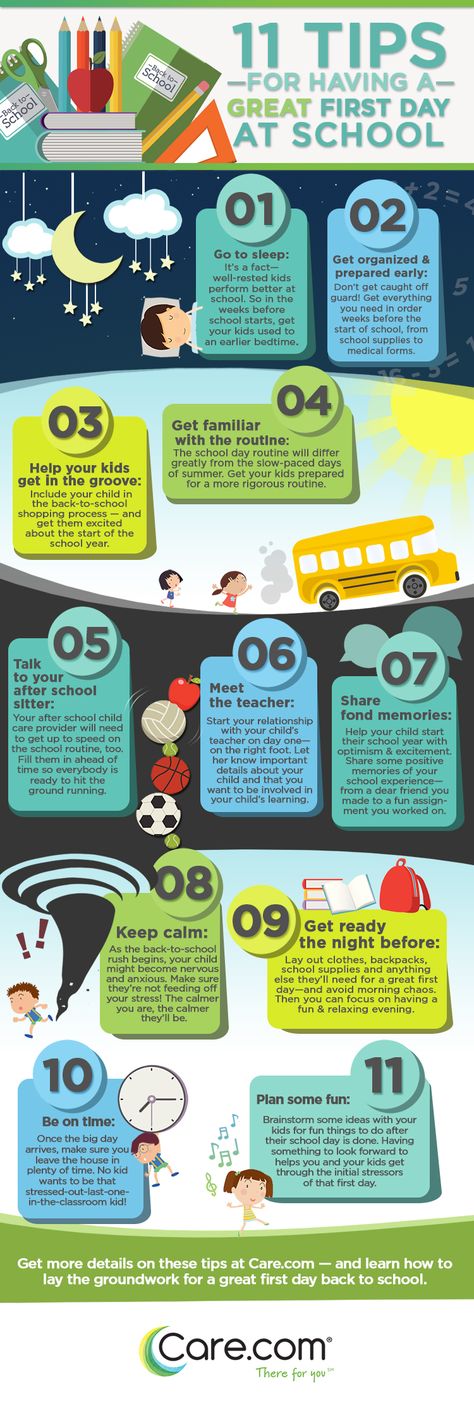 Schools that monitor grades and overall rankings are not interested in taking a pig in a poke. And if in the first grade they, in principle, cannot sort children, then later they are not interested in taking losers and threes from other schools. What is called, and there are enough of their own.
Schools that monitor grades and overall rankings are not interested in taking a pig in a poke. And if in the first grade they, in principle, cannot sort children, then later they are not interested in taking losers and threes from other schools. What is called, and there are enough of their own.
They also refuse if the school is specialized. For example, in it, from the second grade, they study Spanish or French in depth. Children who have not learned these languages before will not be able to study there - there is no point in taking such people.
I was advised to visit the schools in person and find out where there are vacancies. And also talk to the head teacher about applying for admission to the school. So the chance of getting into the right school is higher.
/home-school/
How I got my kids homeschooled
This is how I did it.
Featured Articles for Parents
Everything you ever wanted to know about kids and money is in our twice-weekly mailing list along with the rest of the money stuff
Step 1
Chose a new school We live in a huge residential area of St. Petersburg. They were going to move within their district, but from one end to the other. We planned to do everything in the summer of 2020.
Petersburg. They were going to move within their district, but from one end to the other. We planned to do everything in the summer of 2020.
We immediately realized that we would not leave our son at the old school. It is more convenient when you can walk to school instead of using public transport. Moreover, in our case, the path from school to home would be more than 10 km. Therefore, I began to look closely at schools in the future microdistrict of residence.
We had a choice of five schools. Now I had to figure out which one to aim for.
School ratings. Previously, school ratings were built depending on how graduates passed the exam. Since 2014, there have been no official summary data on the results of unified state exams for schools, but the St. Petersburg Education Committee began to publish school ratings according to other criteria:
St. Petersburg school rating for 2019
- USE and subject diagnostic work.

- High educational results and achievements of students.
- By the quality of the conditions for conducting educational activities - the area of halls, the availability of specialized classrooms, the variety of types of education, etc.
- By the staffing - the number of teachers, their qualifications and achievements.
- Management quality - by the qualifications and achievements of executives, innovation activities and school achievements.
I looked at these ratings and realized that it is difficult to judge the level of the school by them. For example, the results of Olympiads are included in the rating of educational results and achievements. There are schools where children are specially trained for the Olympiads, so such schools will be higher in the rating due to the Olympiads. At the same time, this does not guarantee the quality of ordinary education at all.
On the Internet, I found a rating made by enthusiasts. It is based on data for 2018 published by the schools themselves. But there were only 20 schools, and I didn’t have the ones I needed at all.
But there were only 20 schools, and I didn’t have the ones I needed at all.
/list/alternative-schools/
Where to go to study if you don't like the school: 9 family schools in Moscow
Reviews. There are websites where children and their parents write reviews about schools. Judging by them is also difficult. For example, I know from experience that if a person is dissatisfied, then there are many chances that he will leave a bad review. And satisfied parents will write their impressions about the school only if they are really asked. But I honestly looked through all the reviews that I found.
I also went to the St. Petersburg forum for parents and read everything they write about the right schools. On the forum, you can write directly to one of the users. I wrote to three who wrote about the schools I was considering. Two of them answered me and shared their impressions. I consider such reviews more valuable, because this is definitely not an unsubscribe, but a real opinion.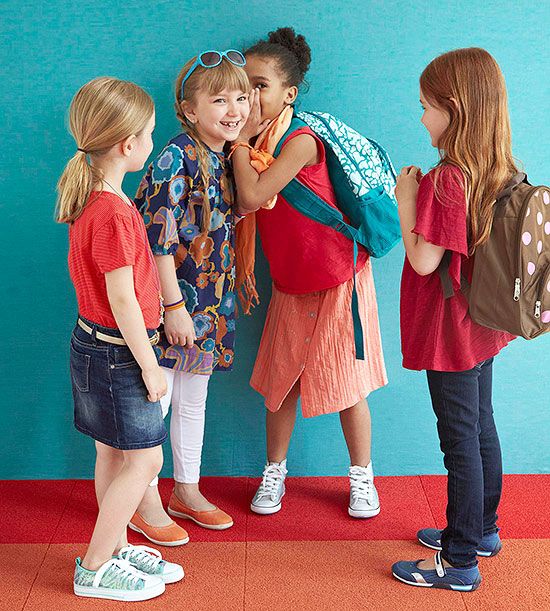 In addition, clarifying questions could be asked.
In addition, clarifying questions could be asked.
Personal communication. I began to ask about the schools of the mothers I know in circles and sections where my son goes. And so along the chain I found a mother whose eldest child studied at one of the schools that I was considering. She said that the teaching staff at the school is strong, and the parallel of classes is large. The child liked the teachers, and he went to school with pleasure.
In the end, this played a decisive role - I decided to try to transfer my son to this school. Geographically, she suited us, her reviews were good.
It took me about a month to think, search and correspond. I started looking at schools in September 2019, when we decided to move, and decided already in October.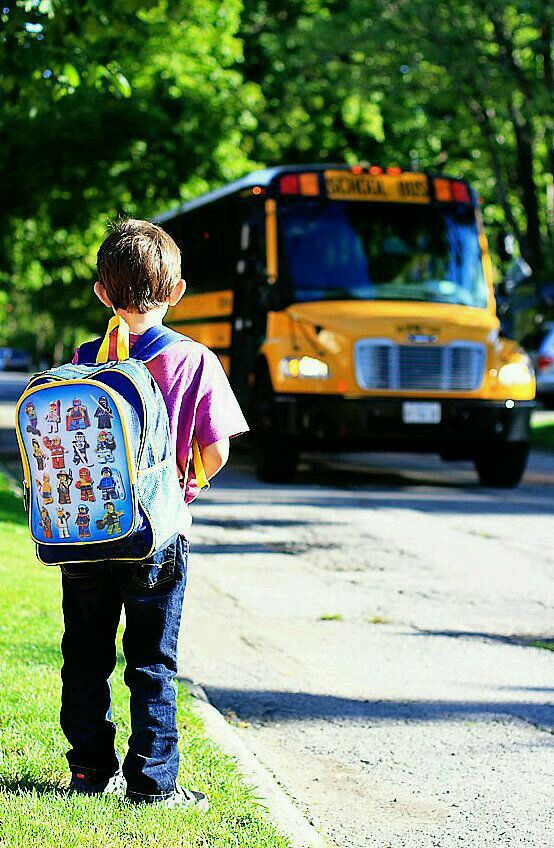
Step 2
Found out about vacanciesNow we had to find out if there were vacancies in the selected school. Such information is available on the website of the educational institution. But later I realized that it is rarely updated. Most often it is written that there are no vacancies. For example, several people left the class from which we transferred our son in three years. But there was no information about free places on the old school website.
In such cases, you can call the school office and find out about vacancies by phone. True, in strong schools, secretaries usually answer that there are no places, or offer to come and find out in person.
This is how the page about vacancies on the school website usually looks like. Although I am sure that there is at least one place somewhere On the website of the new school, I made sure that there were no places, and decided to go there personally. I went to the open day in October 2019 - on this day it is easier for parents to get to school, and the head teacher specially allocates time to communicate with parents. Since the son was supposed to move to the middle link, that is, to the fifth grade, I talked with the head teacher of the middle link.
Since the son was supposed to move to the middle link, that is, to the fifth grade, I talked with the head teacher of the middle link.
This is what the head teacher told me:
- How many places there will be exactly will become clear by the end of the school year, since after the fourth grade many go to other schools. That is, whether there will be free places in the fifth grade and how many, you can definitely find out only in the summer.
- To get into the school, you need to pass an interview and test in the main subjects.
- You can sign up for testing as early as January 2020. If his son passes, he gets on the list for vacancies.
When is the best time to move to a new school: at the end of the year or in the middle
Initially, we were going to transfer our son to a new school when he finished the fourth grade in the old one. But the information about the testing alerted me. The son studied at a regular school, and the new school was a lyceum. The program and requirements could differ, which means that there were fewer chances of getting good scores for testing. To prepare with tutors, you need to know what program the classes follow and what the emphasis is on.
The program and requirements could differ, which means that there were fewer chances of getting good scores for testing. To prepare with tutors, you need to know what program the classes follow and what the emphasis is on.
Therefore, on the next open day of the new lyceum, in November, I went to the head teacher of the elementary school. I was going to find out what kind of program the current fourth graders have and what topics to focus on when preparing for testing. And then chance intervened in the matter - in a conversation, the head teacher mentioned that now they have free places. I thought that I could try to transfer my son to a new school already this academic year, without waiting for the end of the fourth grade. And he would have moved to the fifth grade automatically with a new class.
This had its advantages. Usually, in the fifth grade, children no longer sit in the same classroom, but walk around different ones - it is not easy for a student to get used to a new learning process. And if he is new and does not know the school and his classmates, then this is double stress for the child.
And if he is new and does not know the school and his classmates, then this is double stress for the child.
Primary school has one teacher for all subjects. He will help the beginner get comfortable and make sure everything is in order. In the fifth grade, each subject has its own teacher - there is no such supervision anymore.
But there were also disadvantages: we had to solve the problem of getting to school for a while, until we moved.
I returned home and talked to my son. Before that, we discussed that we would be moving and would need to be transferred to a new school. But he took such a quick transfer painfully. The son wanted to finish his studies at the old school and go to graduation with his classmates. I told him about the pros and cons and suggested that he think about it.
At first, the son refused, but a day later he came up and said that he was ready to try.
We also thought of everything with the road: there was a direct bus from school to home, and in the mornings I would give him a lift myself by car. With graduation, they decided that the son would go to both - both in the old class and in the new one.
With graduation, they decided that the son would go to both - both in the old class and in the new one.
Step 3
Prepared the child for testingIn a conversation, the head teacher said in which class there was a place, so on the November open day, I went straight to the teacher of this class. She told what program they were following and what they were studying. We agreed that in a few weeks - in late November or early December - we would drive up on Monday afternoon so that my son would write tests in mathematics and Russian.
In parallel, during these weeks, we worked hard - wrote dictations in the Russian language and did analyzes, since it was with this that my son had the main problem. Here the teacher at the old school helped us a lot. She said where the child's weak points are and what needs to be tightened up. She also discussed with the child complex topics in which he "swimmed".
Pantry of Russian language dictations
I took dictations from the Internet. We started with easy dictations for the 3rd grade, and then moved on to the more difficult ones. If you start with difficult ones right away, then the motivation will be lost, and the child will not want to study further. The son did well with this dictation. But there were errors in others, so the following pages are thoroughly underlined with a pen in emotional outbursts
We started with easy dictations for the 3rd grade, and then moved on to the more difficult ones. If you start with difficult ones right away, then the motivation will be lost, and the child will not want to study further. The son did well with this dictation. But there were errors in others, so the following pages are thoroughly underlined with a pen in emotional outbursts In early December, we arrived for testing. In mathematics, it was an ordinary cross-sectional control work. In Russian, the son wrote a dictation, did morphological and phonetic analysis.
He wrote decently on the tests: no mistakes at all in mathematics, Russian is a little worse. The teacher said that she would discuss the results with the head teacher, and they would tell us the answer. We were also asked to show our son's current notebooks in mathematics and Russian. They look at how the child learns in general.
A week later I arrived at the school, and they told me that they were taking my son. The head teacher gave me an invitation, which I had to give to the old school. On the basis of it, they were supposed to give me the documents.
The head teacher gave me an invitation, which I had to give to the old school. On the basis of it, they were supposed to give me the documents.
On some forums they write that schools willingly take children who have many diplomas, diplomas and achievements. I have an ordinary child. He is engaged in biathlon, went to the pool and to modeling, but did not win prizes anywhere. My son did not participate in the Olympiads either, so we would have nothing to boast about. But they didn’t ask me anything - the new school focused only on test results.
/list/veni-vidi-vici/
Entering a university without exams: 8 Olympiads that guarantee a budget place
We agreed that my son would finish his second term at the old school and come to the new school after the New Year holidays. I did not dare to translate it immediately after the tests: in December, there are final tests in all subjects, and the child could fail them all simply because of stress.
Step 4
Picked up documents from the old school and clinicIt was not easy to pick up the documents. At the end of December, I called the old school office and asked when I could come. I was told that the documents could be issued only after the New Year, since transfers were closed until the end of the year. But this meant that on the first day after the holidays, the son would not get to the new school. This option did not suit me, and I went to school personally.
They didn't let me past the threshold. The guard called the office - the secretary said that she does not issue documents, which means that we have nothing to talk about. I couldn't get through to the director.
/prava/school/
Parents' rights at school
Then I went to an appointment at the district department of public education, RONO. I looked at the office hours on the website of the administration of our district. An employee of the education department listened to me and was surprised. He said that even if the transfers are already closed, I can still pick up the documents. There were no written orders from the RONO to the schools in this regard. He called the director of the old school in front of me and discussed everything.
I looked at the office hours on the website of the administration of our district. An employee of the education department listened to me and was surprised. He said that even if the transfers are already closed, I can still pick up the documents. There were no written orders from the RONO to the schools in this regard. He called the director of the old school in front of me and discussed everything.
The next morning I came to school and they let me go up to the office. They gave me a checklist. It needs to be signed that there are no debts in the school library and accounting department. After that, they give the child's personal file and a report card with current grades.
Separately, you need to go to the medical office and pick up the medical card, which is handed over upon admission to school. It is similar to the one that is made for admission to kindergarten.
The nurse warned me that I still needed to get the form No. 063/y about vaccinations at the clinic, which belonged to the old school. This form must be transferred to the medical office of the new school, which, in turn, will give it to the clinic to which it is attached. Perhaps somewhere this is already done electronically, but I had to personally go to the card index of the clinic and pick up the form. I had to arrive on a working day in the morning. There were no queues, everything was done in 5 minutes.
This form must be transferred to the medical office of the new school, which, in turn, will give it to the clinic to which it is attached. Perhaps somewhere this is already done electronically, but I had to personally go to the card index of the clinic and pick up the form. I had to arrive on a working day in the morning. There were no queues, everything was done in 5 minutes.
Step 5
I took the documents to the new schoolAt the new school I was asked to bring the following documents:
- Personal file of the child.
- Copy and original of birth certificate.
- A recent certificate of registration according to Form 9.
 It can be replaced by an extract from the house book or EZhD in Moscow and the Moscow Region.
It can be replaced by an extract from the house book or EZhD in Moscow and the Moscow Region. - Two photographs of my son.
- Medical card and form No. 063/y from the clinic.
At school, I filled out an application for admission and consent to the processing of personal data, as well as several other papers such as an application for food.
After that, I went to my son's new teacher with a list of questions. Here are the moments that worried me:
- Where the class undresses: the entire locker room was divided into zones.
- Schedule for the first days of the term. Since my son's electronic diary was not connected yet, I couldn't see it myself.
- How many and which notebooks to buy. In the last school, the parent committee bought everything from us, and the teacher herself gave everything the same to the children.
- When can I come for textbooks and where is the library.
- In what form are they engaged in physical education and where are the lessons - on the street or in the hall.

- What you need to buy for fine arts and technology.
- What is the school uniform and can you sometimes dress more casually.
- How to make an electronic diary and issue a travel card.
- What about lunches and breakfasts, is it possible to pay in cash.
- How to get to school on the first days: there is a pass system, but my son did not have a card yet.
- What is the attitude towards phones at school and whether they can be carried with you.
- Where and to whom to report if, for example, you need to miss one day for family reasons.
What is a student's electronic diary
Separately, I asked about how the class welcomes newcomers and about the general atmosphere in the team. It turned out that the class is not bad, the guys are friends with each other, there are no pariahs and outcasts. At the beginning of the year, several newcomers came to the class, and they were met normally. It calmed me down.
Things to remember
Electronic diary. In my old school, I was connected to my son's electronic diary. As soon as I took the documents, they disconnected me. To connect at the new school, I applied through the public services website and a day later I went to the lyceum's accountant in person to sign the papers. The diary started working on the second day of training.
In my old school, I was connected to my son's electronic diary. As soon as I took the documents, they disconnected me. To connect at the new school, I applied through the public services website and a day later I went to the lyceum's accountant in person to sign the papers. The diary started working on the second day of training.
Without an electronic diary, it would be difficult, because the son did not yet know the phone numbers of his new classmates - there would be no one to ask or clarify something about their studies.
School pass. The school has a pass system - each student is issued an electronic card. You can put money on it for lunches. The card is drawn up by an accountant. I filled it out at the same time when I signed the application for an electronic diary. But the card did not work immediately, but only a day later. While she was not working, I approached the security guard and explained that the child was new and had no card.
Travel card. Students in St. Petersburg can buy a contactless electronic travel card - BEPC - for all types of transport at a reduced price. But for this, you need to present a student identification card and a birth certificate for the first time at the metro ticket office. In addition, the child must be in the electronic database, the registries for which the school submits on a monthly basis.
How to apply for a student's BEP
I issued a new student's certificate for my son through a teacher a few days after the beginning of the term. A student card cannot be issued until the child is officially enrolled in school. At the same time, the school added the son to the register of school students. But the update of the electronic database in the metro had to wait a few days. For about a week, my son traveled by transport for cash.
Maybe I should have gotten my son a monthly pass while he was still in the old school. Then we would not feel the updates of the registries, and then we would immediately buy a pass for the next month as students of a new school. But I didn't think about it in time.
But I didn't think about it in time.
Since my son did not know how to use buses, I had to ride with him twice on public transport and show him where to get on and off. Initially, the son took a direct bus to his house, and then he got the hang of it and even began to travel with transfers if there was no direct bus for a long time.
Parents' Committee. Usually each class has its own parent chat where you can ask for homework or find out about future class trips. Also in this chat they discuss expenses and gifts. I found out from the teacher which parents are on the parent committee and their phone numbers. Later, I was added to the WhatsApp chat.
/school-costs/
I am on the parent committee
Nutrition. In order for the child to be able to go to the canteen with everyone, he must be put on food. But it was clear that on the first day there would be no breakfast for the son in the dining room, because the order to enroll in the accounting department would come a little later. Therefore, in the first days, I gave the child cash with me and collected a small snack. My son was so used to taking food with him that he later gave up school breakfasts himself.
Therefore, in the first days, I gave the child cash with me and collected a small snack. My son was so used to taking food with him that he later gave up school breakfasts himself.
How much time and money I spent transferring my child to a new school
I started looking at a new school in September 2019, and at the end of December my son was officially transferred. He went to a new lyceum right after the New Year holidays of 2020.
The longest part of this process is finding a school and finding out about vacancies and conditions. You can transfer documents from school to school, if you try, even in a day.
I think we are lucky, because it is not so easy to get a free place in a good school. I know those who came to the right school at the end of August and transferred the children in a day, because there were empty places. And our housemates waited for six months for a place in the school where they wanted to transfer the child.
Additional costs. In the new school, the uniform requirements were the same as in the old one. But I still bought my son a new jacket: during the autumn he grew up, and the old one became small for him.
In the new school, the uniform requirements were the same as in the old one. But I still bought my son a new jacket: during the autumn he grew up, and the old one became small for him.
/school-stats/
How much does it cost to send a child to school? In English, the class used workbooks and solution books. I bought them myself via the Internet.
In terms of fine arts and technology in the old school, everything was bought from us by the parent committee for the whole class. For example, in drawing, the teacher gave everyone a sheet of paper, and there were only one paint per desk. In the new school, everyone had their own. Therefore, I bought everything myself: new paints and gouache, an album, brushes, glue, colored paper and cardboard. The son did not use up most of this until the end of the year, and we took the rest home.
I spent 2400 R on office supplies and uniforms
| Jacket | 960 P |
| Materials for technology and ISO | 910 R |
| English workbooks and worksheets | 320 P |
| Notebooks and diary | 210 Р |
Jacket
960 r
Materials for technology and IZO
910 R
Working notebooks and Reshebniks in English
320 p
ATITRADI and Diary
210 Р
Adaptation and difficulties
Transition to a new school is stressful for a child. I knew that my son might start to study worse or worry internally, so I warned him not to be silent about problems and not be afraid to give bad grades. We decided that even if he finished the quarter with triples, nothing bad would happen.
I knew that my son might start to study worse or worry internally, so I warned him not to be silent about problems and not be afraid to give bad grades. We decided that even if he finished the quarter with triples, nothing bad would happen.
To facilitate adaptation, you can go to the school psychologist and get some advice. But I didn’t do it right away, and then I didn’t see the point anymore, because my son quickly became friends with the guys. But if the child does not build relationships in a new team, then a psychologist's consultation will not hurt.
One mother told me that her child adapted quickly when they began to leave him for an extension. There, children have informal communication - they draw, walk and just rage. As a result, relationships develop faster. I didn’t leave my son for an extension, because the circles he attended started an hour and a half after the lessons.
Almost immediately it became clear that my son was lagging behind in some subjects.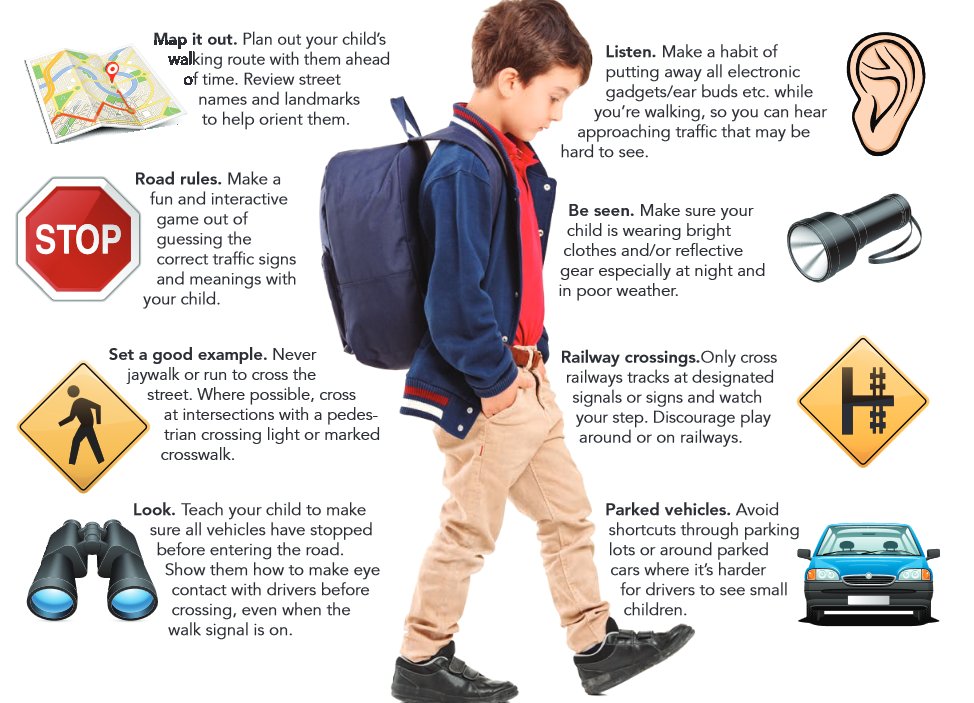 For example, in English, the class studied using a different textbook and actively studied in workbooks, and also wrote vocabulary dictations. My son didn't have any of that at his last school. In addition, in the new class, he was confused and forgot in English even what he knew.
For example, in English, the class studied using a different textbook and actively studied in workbooks, and also wrote vocabulary dictations. My son didn't have any of that at his last school. In addition, in the new class, he was confused and forgot in English even what he knew.
So that our son would not swim at all and at least somehow catch up with his classmates, we took him a tutor. And in the evenings, I studied with him myself - we sorted out homework and previous assignments from the workbook. My son studied with a tutor until the end of the year, we spent 10,000 rubles on him. As a result, in a year my son got a B in English - for us it was a success.
/find-repetitor/
How to find a good tutor
Still having problems with music. At the new school, the guys wrote tests and determined by ear what kind of work sounds. The son was not even oriented in composers and titles of works. I realized that I also need to catch up here.
We were lucky: the music teacher turned out to have a very good site where the necessary excerpts were posted. In the same place, I downloaded a table of composers and works, as well as the basics of music. To make it easier to remember everything, I wrote down terms from it and hung them all over the apartment: on the refrigerator, doors, mirrors and curtains. About once a week I swapped them or replaced them with new ones. A month later, the son began to navigate in terms and composers, and by the end of the quarter he remembered everything. In music, he also got an annual four.
We taught music with the whole family In fact, there were three sheets of paper hanging in the bathroom - two with music and one with times in English him. But anyway, at first, he had to get used to the pace of the new teacher's speech, requirements and features, so the grades were different. We were also lucky with the new class teacher. She introduced her son to classmates on the first day and helped him adapt. In the first weeks, she didn’t call to the board, because her son was very shy, and was loyal to the blots in the notebook until he got used to it. She also put her son at a desk with a quiet neighbor, with whom he became friends. A month later, the son got used to the classroom and stopped being nervous every morning before school. About three months later, he said that he liked the new school and did not regret the transfer.
In the first weeks, she didn’t call to the board, because her son was very shy, and was loyal to the blots in the notebook until he got used to it. She also put her son at a desk with a quiet neighbor, with whom he became friends. A month later, the son got used to the classroom and stopped being nervous every morning before school. About three months later, he said that he liked the new school and did not regret the transfer.
On the road, everything was not so scary either. In the mornings, my son and I listened to audiobooks in the car. Public transport also benefited the child - he became more collected and attentive and learned to navigate bus numbers and stops. Thanks to this, my son in the 5th grade was able to go to a technical circle at the Anichkov Palace in the center of St. Petersburg: if I can’t take him, then he goes to classes on his own.
/guide/doroga-v-shkolu/
How to teach your child to get to school safely
How to transfer a child to another school
- It is better to find out whether there are free places in the school where you want to transfer your child, it is better to find out personally from the head teacher.
